
ANU LAW STUDENTS’ SOCIETY




Our Graduate Program is a rewarding way to kick-start your legal career and is designed to guide you through the experience of what the law is really like, providing you with comprehensive training and mentoring as well as networking opportunities.
At Sparke Helmore, you’ll be actively involved as part of a diverse, genuine and friendly team. We’ll welcome you into our vibrant culture where you’ll work collaboratively to deliver results within a truly national firm.
We’ll help you harness your ambition and take your skills to new heights with exposure to outstanding clients—who are always at the heart of everything we do—and interesting work. You’ll have easy access to exceptional leaders and mentors who are practical experts in their fields. We’ll also invest in your career, development and potential through specialised soft skills training, equipping you with the tools and knowledge to become a capable practitioner and strong all-rounder. You will also have access to our mentoring program, which pairs you with a senior lawyer to give you a broader understanding of the firm and all our areas of law.
We’ll express our appreciation for your contribution in many ways including through structured and informal feedback, team celebrations, competitive remuneration, recognition and incentive programs, and acknowledgement of birthdays and anniversaries.
We offer a suite of great benefits including wellbeing, health and wealth activities, diversity equity and inclusion networks, social activities and pro bono and community opportunities. To help you succeed and achieve the balance you want in your life, flexible working is part of ‘business as usual’.
We’re united by our shared values. They shape the way we behave, help us work together effectively and make sure we put our clients first, without forgetting our people.


Hear from Abigail, one of our recent graduates, about a day in her life.
6:30 am | My mornings usually start with a Pilates class or a swim. I moved to Sydney from Canberra in February 2024, and I try to make the most of living close to the water.
8:30 am | I arrive at the Sydney office. My team focuses on privacy and information law, working with a range of government clients at both the state and federal level. This area of law is constantly evolving, which means we need to stay on top of legislative changes, policy developments, and technological advancements.
9:00 am | My team has lawyers working in Sydney, Canberra, Adelaide, and Melbourne, so our work days usually start with a quick WebEx check-in. If it’s not too busy, I’ll grab a coffee downstairs with colleagues.
9:15 am | I am currently working on a Privacy Impact Assessment for a government client. I carefully review the material provided by the client, prepare draft information flows, and consult with the Australian Privacy Principles Guidelines. Since this area of law is still quite new to me, I ask my Associate if she has time to answer a couple of my questions.
1:00 pm | I go to lunch with some of the other graduates. I enjoy hearing about the different types of work that the other graduates are doing in their teams.
2:00 pm | After lunch, I assist my Associate and Senior Associate with an urgent Freedom of Information matter currently before the Administrative Review Tribunal.
4:00 pm | We need to file some submissions in the NSW Civil and Administrative Tribunal for a statebased privacy matter.
6:00 pm | Before leaving the office for the day, I take some time to check my emails and make a to-do-list for tomorrow.
Your story is yours to define. We’d like to be part of it and for you to be part of ours. After all, the best stories are shared.
If you want to know more, why not take a moment to visit our website, listen to our story, and learn more about our Graduate Program.
www.sparke.com.au/join-us/graduate-program/

The ANU Law Students’ Society is grateful for the support of the 2025 Careers Guide sponsors.
Naming Rights

Premier Sponsors

Major Sponsors



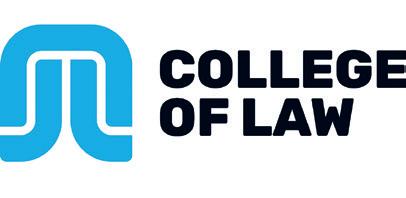

Create your story at Ashurst





With 32 offices across the world and a rich history spanning 200 years, we’ve established ourselves as a leading adviser




Acknowledgements
We acknowledge the traditional custodians of this land on which we meet and gather, and pay our respects to elders past, present and emerging. The Ngunnawal and Ngambri peoples have one of the oldest continuing cultures in human history, and we acknowledge that they have shared their knowledge and teachings on this land for many millennia before us. Sovereignty was never ceded.
Disclaimer
While all care has been taken to provide you with the latest and correct information, we acknowledge that this guidebook is only indicative of one of the many ways to approach your law degree. The views expressed in this publication do not necessarily reflect those of the Australian National University. The information provided in this handbook is subject to change without notice. Please follow the latest information provided by ANU. The publication is distributed free of charge. The author(s), editor(s), and relevant people are not responsible for any errors or omissions that may have occurred in the production of this publication.
vice-president (careers): Indah Jenkins
careers directors: Bridie Liu, Will Jones, Chith Weliamuna and Alex Buyck
publications & it director: Oliver Wiencke
Alex Bako

Welcome! Thank you for taking the time to read the 2025 ANU Law Student Society’s Careers Guide, created in partnership with Sparke Helmore. This Guide showcases the exciting opportunities that await you in the ever-evolving legal profession. Whether your interests lie in social justice and law reform, government law, corporate law, academia or advocacy, we hope that you come away with an expanded understanding of the exciting career pathways available to you.
So why should you read this Careers Guide? For law students who dread the question of what they want to do after graduation, this Guide presents an overview of the world of opportunities open to ANU law graduates.
The LSS strongly believes that students should make informed decisions about their career journeys and this is a great place to start. For students who have a firmer idea of their career aspirations, this guide offers practical advice from successful professionals to help you navigate the path to achieving your ambitions. This includes advice for thriving in law school and strategies for navigating the early stages of your career. Ultimately, whichever law student you are, you’re in the right place.
Beyond this Careers Guide, the ANU Law Students’ Society offers many different events to progress your career development. Our flagship Clerkship Evening will take place on 5 May, providing an invaluable opportunity to learn more about commercial clerkships and network with our corporate sponsors. Throughout the year, the LSS offers firm visits to help you visualise a career in corporate law, and various panels to learn more about the array of opportunities available. As ANU’s largest, oldest and most active student society, we also offer many other educational, social and social justice initiatives. We highly recommend that you get involved with the diverse range of events we have to offer.
Before I conclude, there are many people I’d like to thank. First, I would like to

acknowledge the LSS Careers portfolio led by Vice-President Indah Jenkins, and her directors Bridie Liu, Will Jones, Chith Weliamuna and Alex Buyck. They have put countless hours into assembling this Guide, and the final product is a testament to their hard work and professionalism. I would like to extend my gratitude to our Publications & IT Director, Oliver Wiencke, for his diligence and skill in producing this invaluable resource.
Lastly, we are incredibly grateful for all our sponsors, whose continued support of the LSS enables us to carry out initiatives like this one to support ANU law students. In particular, I would like to thank the naming sponsor for this Careers Guide, Sparke Helmore, for their ongoing partnership and generous support.
I hope the 2025 Careers Guide proves to be an interesting read that provides invaluable insights into the opportunities available to you as an ANU law student. If you have any questions about the Guide or the LSS more broadly, I encourage you to reach out. Otherwise, happy reading and I hope this serves you well as you embark on your legal career.
Wishing you all the best for the year ahead,

Alex Bako president
Indah Jenkins

On behalf of the Australian National University Law Students’ Society, it is my pleasure to welcome you to the 2025 Careers Guide, proudly sponsored by Sparke Helmore Lawyers. This year’s guide centers on an important message: there is no single pathway to a successful career in law. A fulfilling and impactful career can take many forms, and no two journeys are the same. With that in mind, my team and I have carefully curated insights from professionals across the legal landscape. From private practice to social justice, the public service to academia, these individual stories reflect the diversity of opportunities that an ANU law degree can unlock. As you explore these pages, we hope you feel inspired to carve out a career that is uniquely your own.
Consider this publication a source of encouragement and a reminder that your potential is limitless. Law school is undoubtedly a challenging journey filled with late-night study sessions, endless reading, and competing priorities. The contributors to this publication have all walked the same path you are on. If anything, this publication is a reflection of the vast and supportive alumni network available to ANU Law students. Don’t hesitate to connect with them, ask questions, or chat over a coffee! This network is here to support you every step of the way. Whether your passion lies in shaping public policy, driving social change, or leading innovation in the private sector, you have the potential to pursue what you love and create a meaningful impact on individuals and communities. So take a moment to reflect on how far you’ve come and the countless opportunities that lie ahead of you.
I’d like to express my gratitude to all the inspiring individuals who took the time and effort to contribute to this publication. We have gathered insights from many accomplished industry professionals who have dedicated time from their busy schedules to share their invaluable perspectives. Your words will undoubtedly serve as a great source of inspiration for law students and aspiring

lawyers as they navigate their career paths. To our wonderful sponsors, thank you for your continuous support, which has made this publication possible. I look forward to what I am sure will be an exceptional year of collaboration.
A heartfelt thank you to the Law Students’ Society team, especially my Directors Alex Buyck, Bridie Liu, Chith Weliamuna, and Will Jones. Your hard work in putting this guide together is truly appreciated. It has been a pleasure working with such a fantastic team, and I’m looking forward to all we will achieve together for the rest of the year. To Oliver Wiencke, our Publications & IT Director, we are so grateful for your contributions to this beautiful guide. Your diligence, attention to detail and creative skills do not go unnoticed. You should be incredibly proud of your efforts and I cannot wait to see what ideas you’ll bring to our next publication! To Roshan Kewalram, our
Vice-President (Sponsorships), thank you for your tireless work in liaising with sponsors across the country to ensure this guide could come to fruition, and for always being there to answer my questions! To Alex Bako, our President, thank you for being a steady support for the LSS. I look forward to seeing all the amazing things you’ll achieve as you lead the society this year. And finally, to our readers. As you dive into these pages, I trust they will offer inspiration and insight into the versatility of a legal career.
Wishing you success in all your future endeavours,

Indah Jenkins vice-president (careers)

A law degree provides the optimal stepping stone to a vast array of diverse career pathways.
Studying law opens the doors to a wide range of career opportunities. You may choose to apply for a clerkship at a commercial law firm, or make the most of being in the nation’s capital and pursue a career in the public sector.
You may also be passionate about giving back to the community, and choose to work in the law reform and social justice space.
Alternatively, you may find yourself called to the Bar. If practising law is not the right path for you, you may wish to pursue a career in academia.
This guide intends to provide a snapshot into each of the above potential pathways, arming you with the insight and information you need to step into your career!
The Law School to Careers section includes:
Pre-Penultimate Opportunities
Where to find valuable early experience in the legal sector.
Applications 101
No matter the pathway you choose to pursue, it will likely involve an application process that includes the following steps:
• A cover letter
• A curriculum vitae (CV)
• A statement of claims*
• An interview
* This is a separate document which may be requested by the potential employer. It is similar to a selection criteria, requiring the applicant to detail how they meet the requirements of the role. The precise skills or qualifications should be stated outright.
The Applications 101 section provides helpful tips and tricks for students applying for clerkships, internships, graduate positions, part time work, or volunteer experience.
Here you will find:
• Writing a captivating and concise cover letter: tips, structure, and an example cover letter.
• Assembling a stand-out CV: tips, formatting, structure, and an example CV.
• Acing your interview: tips, and sample interview questions.
Requirements to Practice Law in Australia
The steps you need to take to practice law in each Australian jurisdiction.
Early experience working in the law is invaluable, allowing pre-penultimate students to get a taste of the many different pathways open to law graduates. Seeking out this experience can be daunting, but do not stress—there are many opportunities available!
Paralegal Work
Firms working in all areas of the law need the assistance of paralegals behind the scenes. Paralegal roles are often publicised on ANU Career Central, and other online job directories.
Clerking at a Barrister’s Chambers
If you are interested in a career as a barrister, there is no better experience than clerking in a chambers. These roles are publicised on similar careers platforms as noted for paralegal positions.
Student Editing the Federal Law Review
Renowned as one of the foremost law journals in the country, there are few better editorial opportunities than student editing the Federal Law Review. Keep an eye out on Wattle postings for application deadlines!
Important Resources


Prosple – the ANU Law Students’ Society’s Careers Directory
ANU Career Central

Working or Volunteering for a Community Legal Centre
Working or volunteering at a Community Legal Centre is an extremely rewarding opportunity to develop invaluable legal experience.
Useful Links


Working at Legal Aid
Get involved with the Women’s Legal Centre
Working in the Public Service
Why not make the most of your time in the Bush Capital and venture into the legal domain of the public service? There are a range of paralegal, administrative, or research-based part-time roles available in government departments.
Useful Links



Employment at the Australian Government Solicitor
Current vacancies at the Attorney-General’s Department
ACT Government employment opportunities
Pre-penultimate years are the time to slowly curate your CV as well as to experience a taste of the many facets of the law. The ability to demonstrate a wellrounded character with diverse interests and experiences is of great assistance in the later-year application processes.
Your CV and cover letter are essential for securing legal roles. A strong CV should be clear, concise, and highlight relevant achievements, while your cover letter personalises your application by demonstrating motivation and suitability. Tailor both to each employer—avoid generic content. Many firms use application portals, so treat responses with the same attention as a cover letter.
Precision is key: legal employers value written communication, so proofread thoroughly and seek feedback to ensure a polished, professional submission.
1� Reflect and Plan
Start by reflecting on the experiences and achievements that have contributed to your development. If you are struggling to critically reflect on your personal qualities, seek advice from your peers or colleagues. Discuss your strengths, weaknesses, and what you bring to a team. Plan the structure of your cover letter.
Sample structure:
Paragraph 1: Introduction
Paragraph 2: The organisation that you are applying to
Paragraph 3: How you meet the selection criteria
Paragraph 4: How your personal values align with that of the organisation
Paragraph 5: Conclusion and thanks
2� Frame Your Cover Letter as the Narrative of Your Pathway So Far
Describe the experiences and achievements that have brought you to this point, and how these moments pushed you to apply for this role.
For example, if you are passionate about the environment, describe when you first developed that passion, how
[Date]
[Name of Contact Person] [Position]
[Name of Organisation] [Address]
RE: Application for [Name of Organisation] [Role]
Dear Mr/Ms [Last name of the contact person],
[Your name] [Your address] [Your contact information]
I am writing to express my interest in a [position] at [Name of organisation]. I am drawn to [Name of organisation] because of its standing as an innovator in the tech and trade law industries, and I believe that I am a promising candidate who has the passion and relevant experience to excel in your organisation.
I am currently undertaking my final year of a Bachelor of Laws and Bachelor of Arts degree at the Australian National University (ANU). While maintaining a distinction average, I have been an active member of the Trade Law Society (TLS), worked as an academic tutor, and coached in a number of sporting competitions at the ANU. I have volunteered at the Women’s Legal Centre, while working as a Barristers’ clerk at Blackburn Chambers.
I am a motivated student, a critical thinker, and a team player. My interest in international trade first arose when I attended the International Trade Summit in Singapore. Most recently, I was a part of the winning team at the International Trade Law Student Competition, which involved creating and presenting a trade proposal to stimulate the economies of underdeveloped nations.
[Name of organisations]’s global outlook and recent expansion into the tech law sector appeal to both my legal background and interests in international law and innovation. In addition, I strongly resonate with the values of hard work and forward-thinking that are at the forefront of [Name of organisation]’s ethos. I first came to be aware of the work of [Name of organisation] when I came across a high-profile matter, in which [Name of organisation] were representing [brief description of the case]. I would welcome the opportunity to learn from your team of experienced professionals, and contribute to [Name of organisation]’s growth in the trade and tech law sector.
Thank you for your time. I look forward to the opportunity to discuss my application further with you.
Yours sincerely, [Applicant name]
you volunteered at the Environmental Defender’s Office, specialised in environmental law or found a mentor working in environmental law reform. Demonstrate to the potential employer that this role is the natural progression in your pathway.
Go into greater depth on the significant achievements that may be overlooked on your CV. If you have been provided with a selection criteria, carefully address each criterion. Make clear the connection between your past
3� Connect with the Organisation
Take the time to research and consider the culture, focus, or interesting qualities
of the organisation. Describe how and why you feel you would thrive in this environment.
If you are applying to multiple organisations, avoid the copy and paste approach as much as possible. Each letter should be tailored to each organisation, clearly demonstrating a considered understanding of their unique values.
4� Style and Syntax
Keep your cover letter to a page in length. Short and concise sentences demonstrate your ability to write effectively.
Check for punctuation, grammar, and spelling mistakes with a fine-tooth comb!
Your CV provides a summary of your education, employment history, skills, and professional and volunteer experience. It is an important opportunity to market yourself and emphasise your strengths. The following tips are a guide to constructing a strong CV.
1� Career Objective (Optional)
This is a brief paragraph to inform potential employers of your intended career trajectory and aspirations. This should be one to two sentences long.
2� Education
Education should be presented in reverse chronological order.You should include the institution, course, year of entry, and expected year of completion. You should also include any academic achievements, honours, awards, or scholarships that you have received while studying, in addition to your current GPA/WAM. Undergraduate students may include their secondary study, particularly if they have an impressive ATAR or entrance mark.
3� Work Experience
Work experience highlights the experiences, skills, and achievements that make you a strong candidate. As with education, work experience should be listed in reverse chronological order. You should include the job title, employer, start date and finish date, duties, and responsibilities. You may like to divide this section into “Professional Experience” and “Volunteer Experience”.
4� Other Achievements
This section will include any notable accomplishments and extracurriculars that may be relevant to the role or to your professional development, but do not fit into the education or work experience portions of your CV. For example, a leadership role you held at university,
[Contact number]
[Objective] Motivated, hardworking, and passionate. I am seeking to start my career in commercial law by using my strong problem-solving and communication skills in a graduate position with a leading multinational commercial firm.
The Australian National University
[First year – Expected year of completion]
Bachelor of Laws/Bachelor of [Double degree]
• Grade Point Average:
• Academic Achievements:
• [Scholarship]
• [Award]
• [Academic prize]
[Exchange University]
[Starting month and year – Finishing month and year]
International Exchange Program Grade Point Average:
[High School]
[First year – Year of graduation]
• ATAR:
• Academic Achievements:
• [Scholarship]
• [Award]
• [Academic prize]
PROFESSIONAL EXPERIENCE
Employer
[Starting month and year – Finishing month and year]
Role [Description of the role and skills developed]
My role at [Employer] consisted of drafting legal documents, interviewing clients and witnesses, and assisting partners in preparing for trials. After spending over a year in a team of experienced legal professionals, I developed a strong professional work ethic. I developed commercial written communication skills by writing legal documents, and practical oral communication skills by engaging with clients on a regular basis.
Employer
[Starting month and year – Finishing month and year]
Role [Description of the role and skills developed]
Employer
[Starting month and year – Finishing month and year]
Role [Description of the role and skills developed]
or your involvement in a youth organisation or student society.
5� Interests
Discussing your interests enables you to present yourself as a well-rounded, interesting candidate. It provides the potential employer with an insight into how you may fit in at the organisation. Your interests may be raised as talking points during the interview, so make sure they are genuine!
6� Referees
You should provide at least 2 referees at the bottom of your CV. These individuals will be able to attest to your character, skills, work ethic, or past work experience.
[Email address] VOLUNTEER EXPERIENCE
Organisation
[Starting month and year –Finishing month and year]
Role [Description of the role and skills developed]
• [Student organisation/societies]
• [Leadership position within an organisation, residential hall, university society]
• [Academic or mentoring programs]
• [Achievements not mentioned in your education, professional experience, or volunteering experience sections]
[Description of any unique interests or passions, and what you do in your spare time]
In my spare time, I enjoy travelling, reading crime novels, going to restaurants and taking pictures of my food. Last year, my friend and I started making a podcast, where we discuss topical popular culture subject matters and the latest news in fashion.
We produce episodes fortnightly, and have just hit over 100,000 listens!
[Former Employer/Supervisor/Mentor/ Colleague/Tutor]
[Contact details]
[Former Employer/Supervisor/Mentor/ Colleague/Tutor]
[Contact details]
You should include their full name, role, organisation, and contact information. It is important to ensure that you have received approval from your referees before including their contact information on your CV. Let them know to expect correspondence, and give them a brief description of the role and what your application entails.
7� Formatting
It is important that your CV has a neat and professional look. Avoid bright colours or graphics that distract from the substance of the CV. Online sites like Canva have fantastic free and easy-to-use templates to format an impressive-looking CV.
You have clearly made a positive impression with this organisation during the earlier application rounds. This potential employer has identified a number of positive qualities in you that suggest you would be a suitable addition to the organisation. The interview is your opportunity to reinforce those qualities and connect with the potential employer in person.
Research the firm
Which areas of practice do they specialise in? Who are their major clients? Have they recently been involved in any matters that are of interest to you?
Relate to the firm
Articulate what you see as the firm’s core values and ethos. Give a practical example of how you would demonstrate those values in practice.
Be personable and authentic
As a client service-based industry, legal employers will be noting the way you present yourself and engage with others. Arrive at the interview on time, ensure your clothing is neat and professional, and maintain positive body language throughout.
Practice
Run a couple of practice interviews with your friends and family to ease your nerves on interview day.
• Tell me about yourself.
• What do you like to do in your free time?
• Do you want to undertake further education?
• What book are you reading at the moment?
• How would your peers describe you?
• What is your worst and your best quality?
• What value matters to you most?
• What quality do you think sets you apart from other applicants?
• When is it better to follow rather than to lead?
• Describe a time in which you were faced with a difficult situation.
• How did you overcome that situation?
• Tell me about a risk you have taken in your life.
• Tell me something that is not on your CV.
• Who is a role model in your life and why?
• If you could have lunch with anyone, dead or alive, who would you have it with, and what would you ask them?
• Where do you see yourself 5 years from now?
• If you could have any job in the world, what would it be?
Sector-specific
• Why do you want to work in private practice/the courts/corporate advisory/government/international law and diplomacy/public interest law and social justice?
• What are you hoping to gain from working at this organisation/firm?
• Do you have a particular interest in this sector?
• What are some of the current issues in this sector?
• What do you see as the benefits and drawbacks of the changing legal environment?
Organisation-specific
• Why do you think you are a good fit for this organisation/firm?
• Why do you want to work for this organisation/firm?
• What do you see as the biggest challenges facing organisations/firms like this?
Situational
• Describe a time where you demonstrated our organisation’s value of ___
• Describe a time where you found an innovative solution to a difficult challenge.
• Describe a time where you handled negative feedback.
• Describe a time where you demonstrated leadership.
• Describe a time where you had to respond to a group conflict.
• Describe how you deal with stress and high pressure situations.
• Describe your provided accomplishment.
• Describe a time where you set a goal, and how you came to achieve it.
Questions for the interviewer
• What was your pathway to this organisation?
• What do you enjoy about working here?
• Could you tell me about an interesting project or matter you have worked on during your time here?
• What does an average day working here entail?
• What would the responsibilities of this role entail?
• What does the training process for this role entail?
• How are the teams/practice groups structured at this organisation?
• In this role, would there be regular interaction between the clerk/ graduate/intern/associate and the senior members of the organisation?
• Are there regular opportunities for feedback?
• Does this organisation offer opportunities for pro bono work, and how often would those opportunities arise?
• I welcome challenges and like to work hard, but how is work/life balance achieved at this organisation?
Your academic qualification is only one of the steps required for admission to practice law in Australia. You will need to undertake Practical Legal Training (PLT) to obtain your Graduate Diploma of Legal Practice (GDLP). You will also need to meet the requirements of admission relevant to the specific jurisdiction you are seeking to practice in.
What is PLT?
After finishing their law degree, graduates seeking admission to practice law must complete Practical Legal Training to obtain their Graduate Diploma of Legal Practice.
PLT aims to provide graduates with the practical skills and knowledge required to complement a theoretical understanding of the law in legal workplaces. PLT will familiarise you with the day-to-day tasks of a practicing lawyer in various areas of law.
Although some states offer alternative training options which graduates can complete in lieu of a GDLP, the GDLP is accepted in every Australian state and territory as a practical legal training qualification.
What does the course look like?
Although the course varies somewhat across institutions, the general requirements of the program are substantially the same. You will be required to complete a number of compulsory coursework and elective subjects, as well as practical work experience/legal placement.
The compulsory and elective subjects taken throughout the course will focus on skills, practice areas, and values.
For the practical work experience portion of the course, a placement will typically be organised by the institution which you are completing the course through.
If you are completing an online course, you may be required to organise your own work experience.
The duration of the PLT course differs across institutions, and you can expect a full-time course to take anywhere from 15-24 weeks with approximately 25 hours of coursework each week.
Part-time courses are also available to students who intend to study or work while completing the program, and take anywhere from 30-38 weeks with an expected 15 hours of course work per week.
When and where should I complete PLT?
The Legal Profession Admissions Board requires that graduates complete PLT within 5 years of completing their degree. If this period is exceeded, graduates may be required to take a number of additional subjects before commencing their PLT.
Although ANU does not currently offer a PLT course, ANU law graduates can obtain their GDLP from any of the following institutions through an in-person or online course:
• The College of Law
• Leo Cussen Centre for Law
• Bond University
• Queensland University of Technology
• The University of Adelaide
• University of Tasmania, Centre for Legal Studies
• University of Technology Sydney
• UNSW Practical Legal Training
It is important to note that if, following the completion of your degree, you are accepted into a graduate program, firms will often require you to undertake PLT at a particular institution of their choosing.
Once you have completed your PLT, you may be admitted to practice law at the Supreme Court of the state or territory that you are seeking to practice in. The requirements for admission differ slightly in each state or territory.







Admission as a lawyer in the Australian Capital Territory
Admission as a lawyer in New South Wales
Admission as a lawyer in Victoria
Admission as a lawyer in Queensland
Admission as a lawyer in Western Australia
Admission as a lawyer in Tasmania
Admission as a lawyer in the Northern Territory

A clerkship provides an invaluable opportunity for aspiring lawyers to gain firsthand experience in legal practice. Clerks undertake a variety of tasks that develop their skills, build professional networks, and offer insight into different areas of law.
This experience helps in securing a graduate role, refining legal research abilities, and understanding the inner workings of a firm.
Here are some potential tasks and activities clerks may undertake:
• Legal research and case analysis
• Drafting legal documents and correspondence
• Observing client meetings and court proceedings
• Assisting with due diligence and transaction support
• Preparing case summaries and briefing notes
• Reviewing contracts and legislation
• Supporting pro bono and public interest work
Clerkships also provide opportunities to:
• Gain mentorship from experienced lawyers
• Experience different practice areas through training seats
• Participate in court hearings and litigation processes
• Work on high-profile and complex cases
• Engage in networking and social events with professionals
• Undertake international secondments and cross-border matters
• Develop advocacy and negotiation skills in a professional setting
The Clerkships section covers:
Clerkship Experiences by Aislinn D’Arcy
Clerkships for the Ambivalent by Ben Yates
Clerkship Tips and Tricks by Felix Archibald
Clerkships from the Perspective of a Current Clerk by Sam Soar
My Journey and Tips for Navigating the Clerkship Process by Sarah Hartan

What is your current role and specialisation?
I’m a fifth-year Law (Hons)/Arts (International Relations/ Economic Studies) student. I haven’t specialised, but most of my electives have involved commercial or private international law.
What was your pathway towards attaining a clerkship?
I applied to eight to nine Sydney firms during the application window. The Law Society of NSW website contains all the relevant information about the hiring firms, due dates, and application portals. Each firm will have its own application process, but in general, the assessment process for each firm may include: written answers to a set of questions and/ or a cover letter; your CV and academic transcript; psychometric testing; an information evening; two rounds of face-to-face (or video) interviews; and a cocktail evening.
What attracted you to gain clerkship experience?
A clerkship is a great launching pad for a legal career—you’ll establish professional networks and develop skills in a structured, supportive environment. It’s also one of the most reliable pathways into a graduate program at a top-tier firm (but it’s not the only pathway, which is important to keep in mind).
What are the skills required to attain a clerkship?
Different firms value different attributes—if you’re thinking about applying, I’d strongly recommend speaking to someone who’s been through the process before. In general, most firms seem to look for a strong academic record, legal work experience, and success at some other co-curricular activity (whether it be mooting, sport, community-related, etc.). Leadership experience is also highly regarded.
Most top-tier firms will appreciate students who can show a singular dedication to their program, for example

through participation in their prepenultimate programs, engagement with their law fair appearances, connections with their lawyers and/or a demonstrable interest in one of their practice areas/ projects/matters. You’ll need to do a fair bit of research into each firm you apply to and your interviewers.
What are the most rewarding and challenging aspects of a clerkship?
The relationships I established with senior lawyers in my teams were super rewarding—I made strong connections with people I felt were truly supportive of my professional development and aspirations. It was also great to learn on-the-job about various practice areas and career possibilities.
The most challenging aspect was probably the intensity—you’ll be very busy in your teams and meet a lot of people in a very short amount of time.
What would you recommend for students hoping to attain a clerkship?
The application process is timeconsuming and effort-intensive,
make sure you plan ahead and look after your wellbeing. The commute to and from Sydney for interviews and cocktail evenings is tiring and the ANU College of Law, Governance and Policy won’t provide special consideration for missed classes or interviews which conflict with assignment due dates, so it’s a tough semester.
It’s a high-pressure process, but it’s important to remember that it isn’t a make-or-break moment for your career—many incredibly successful legal professionals did not complete a clerkship.
Overall, the experience is worth the effort—it’s a very fun summer in Sydney and you’ll have a great time learning about commercial law while meeting students from other universities. Most firms organise nice lunches, dinners, and drinks for their clerks, and there are so many inter-firm social occasions, like the clerk cruise. Even if you don’t think commercial law is for you, I’d recommend the clerkship to anyone interested in becoming a legal professional.
Ben Yates
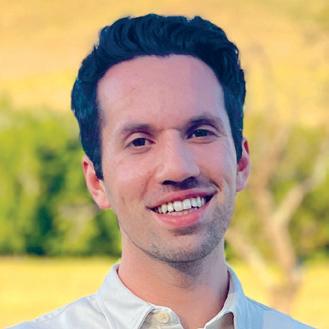
I am currently an Associate at the Boston Consulting Group (BCG) in the Sydney office. During my degree, I also completed a clerkship at Corrs Chambers Westgarth in Sydney and received a graduate offer from the firm. I ultimately declined the Corrs graduate offer in favour of a non-legal graduate role at BCG.
I went into the clerkship open-minded and prepared to be convinced that legal practice was for me. While I ultimately chose a different path, I was glad to do so with the benefit of the exposure I got at Corrs.
I interviewed at most of the top national firms and a few international firms in Sydney and received offers from several top domestic firms and an international firm. Concurrently, I completed the recruitment process for BCG through their early graduate intake pathway. I received my graduate offer for BCG a few weeks after clerkship offers.
Clerkship advice for the ambivalent
Don’t knock it until you’ve tried it! It is difficult to understand commercial practice from the outside. You may enjoy it more than you expect. Moreover, if a non-legal commercial career or a noncommercial legal career might interest you, you may gain some insight into both of these through a clerkship.
I didn’t know if clerkships were for me; I found much of the discussion about clerkships, firms, and careers to be alienating and confusing; and I entered the clerkship process knowing little about the major firms. To be honest, I did most of my research while writing cover letters and, in a number of cases, in the lobbies of office towers in Sydney before interviews.
The differences between the firms, especially between firms in the same “tier”, are often overstated. You will get exposure to the best of commercial practice at any of the major firms. With that said, I think there is a substantial role for gut instinct if you get multiple offers. Who did you “click” with? Don’t get

preoccupied with the vague statements of culture that proliferate online.
The clerkship recruitment process undoubtedly rewards those who have a clear vision of their career … or at least those who appear to have a clear vision. Application forms query your legal interests, preferred practice areas or future career aspirations. These questions cannot be sidestepped. I would suggest identifying a partner in the firm (and the same office that you are applying for) who works on matters that interest you and then researching their work. For my part, I spoke about how I found public law— especially administrative law—interesting, but I also spoke about how I wanted to rotate through a transactional team to understand that side of legal practice.
Clerkship pitfalls for the ambivalent
If you want a justice-oriented career, the clerkship process can be challenging. While most firms are sincerely proud of their pro bono work, firms might be wary if their pro bono programs appear to be the beginning and end of your interest in the firm.
It may help to consider why you actually want a clerkship. Many young lawyers choose to go into a commercial law firm to do PLT and develop their skills before moving to a community legal centre or other purpose-oriented employer.
Teams such as litigation, investigations, class actions, and employment all build legal skills that will be valuable in a justice-oriented career.
Few firms would begrudge someone expressing that they see themselves on the plaintiff-side or in policy work in the longer term. However, it is both a solid interview strategy and investment in your early career satisfaction to ensure your interest in a clerkship and graduate role goes beyond pro bono programs.
Should I go into legal practice?
I loved my law degree. I love legal research. But I ultimately found this did not translate to loving legal practice. When I was thinking about which graduate offer to follow, I found it helpful to think in macro terms about what lawyers do and how that aligned with the work I enjoyed. It is also helpful to think about the ways of working in law firms—team structures, billing time, specialisation—and whether that aligns with your preferences. Importantly, these considerations are bigger than any particular law firm or team. My decision not to accept a graduate legal role was informed by my unwillingness to specialise early in my career and my confidence that commercial legal practice was not my long-term goal.
Felix Archibald

What clerkships are you completing?
I am clerking in Melbourne with Corrs Chambers Westgarth, Arnold Bloch Leibler and Allens.
What was your pathway towards attaining a clerkship?
I have tried to get a wide variety of experience at law school. I never really thought about this as a “pathway” towards attaining a clerkship, but it does mean you always have a range of experiences to talk about in your interview.
First, I have worked as a paralegal, currently at Norton Rose Fulbright and previously at MinterEllison. I do not think that people with legal work experience have any particular advantage when applying for clerkships (as compared to other work experience such as hospitality or retail), except to be able to use this experience to explain why you are interested in commercial law.
Second, I completed an internship at the North Australian Aboriginal Justice Agency (NAAJA) in Alice Springs. Aside from being a fabulous and eye-opening experience, this allowed me to be able to connect with commercial firms’ pro bono reconciliation work.
Third, I have competed in a couple of mooting competitions, which helped me explain why I was specifically interested in litigation.
Fourth, I have done some law reform work, especially in technology policy, with the LRSJ Research Hub and the New South Wales Council for Civil Liberties.
What attracted you to gain clerkship experience?
Like many people, I was attracted to gain clerkship experience because this is the principal method for securing a graduate role at a commercial firm. I was particularly interested in gaining clerkship experience at Arnold Bloch Leibler due to their fundamentally different business model to other leading commercial firms, such as the radical level of responsibility they give graduates. I was also interested to compare this

“In every interview I had, the first question was, ‘Why commercial law?’ This is also the focus of the clerkship cover letter� Thus, it is important to be able to articulate why you are interested in working at a commercial law firm, and what seminal experiences you have had that evidence this interest�”
model with some of the more traditional law firms. Throughout my clerkship experiences so far, I have benefited from being able to draw this comparison.
What would you recommend for students hoping to attain a clerkship?
I would recommend that students focus on the two most important factors, which I believe are your academic record and your degree of interest in commercial law. On the first point, most leading commercial firms will generally only interview you if your WAM is above 75, regardless of your CV. While this can
mean they miss out on meeting strong candidates, it is an easy way for them to sift through thousands of applications. Hence, to catch the eyes of recruiters, it is important to do your best at university. On the second point, commercial firms really want clerks who have a genuine interest in the work they do.
In every interview I had, the first question was, ‘Why commercial law?’ This is also the focus of the clerkship cover letter. Thus, it is important to be able to articulate why you are interested in working at a commercial law firm, and what seminal experiences you have had that evidence this interest.
My final recommendation would be that students try and find mentors who have recently been through the clerkship process. I found it extremely useful speaking to a couple of current graduates who were able to review my cover letters and talk through interview strategy.
People you could reach out to include those you have met at the LSS Clerkship Night, previous ANU graduates and anyone you have anything in common with. Start by asking to chat over a coffee—caffeinated people are generally very willing to help!
Sam Soar

What is your current role and specialisation?
I undertook a clerkship at Clayton Utz in their Canberra office. Throughout my clerkship, I rotated through the Public Sector and Commercial Litigation teams.
What was your pathway towards attaining a clerkship?
Despite what I tell myself, I imagine I have had a fairly typical journey to a clerkship. I grew up predominantly in Canberra and was fortunate enough to start at ANU in 2021.
When I started at ANU, I wanted to pursue a career in my non-law double degree in science, but I found it hard to get a job in the sciences at an entry level, so I decided to take up a paralegal job at a boutique firm. Upon starting this role, I quickly realised that the law in practice was something I really enjoyed and decided to start pursuing a career in the law.
From then on, pursuing a role at a larger firm seemed like a natural next step, as there was exposure to more diverse practice areas than a boutique firm, and while the form of practicing law appealed to me, the subject matter I had been working on was not as appealing to me.
This led me to a role at Clayton Utz, where I have been fortunate enough to try various areas of the law and see how different lawyers respond to different demands—importantly, allowing me to start to figure out what subject matter I want to work on.
What attracted you to gain clerkship experience?
I applied to expose myself to the variety that different lawyers can have in their day-to-day jobs. Given how lost I feel in deciding what subject matter I wanted to work on, the clerkship provided an opportunity to “taste-test” two areas and further close in on what I want to work on.
Further, I wanted to access the potential learning opportunities that working at a firm like Clayton Utz provides. These firms attract amazing lawyers and the

chance to learn from these lawyers was attractive.
What are the skills required to attain a clerkship?
Practically, to obtain a clerkship, you must write a successful application and then (in Canberra and Sydney), survive two interviews and, generally, a networking/cocktail night. Following this, firms will decide which candidates most fit what they are looking for and make offers accordingly. As a rough guide, what firms look for is not evident. Each firm is looking for slightly different things and may rely on different indicators to make hiring decisions.
In relation to specific skills, there are few, if any, expected skills aside from having a pulse and being in the penultimate or final year of your law degree. Firms do not expect students to come in with any practical legal knowledge or any corporate know-how. Obviously, having specific skills can be helpful, but they are not expected.
Also of note is that there seems to be a perception that you need perfect grades to get a clerkship. Trust me, my grades are nowhere near perfect (and I am sure most other people doing a clerkship
would agree). Obviously, grades are used as one metric to measure you, but they are certainly not the sole determinative factor in whether or not you get an offer, so please don’t feel that one bad semester disqualifies you from a clerkship completely.
What are the most rewarding and challenging aspects of a clerkship?
As corny as it is, I think the best part of the clerkship is the other clerks you have the opportunity to do it with. I really enjoyed meeting and then getting to know the other clerks throughout the program.
In terms of challenging aspects, I would say it was the reliance that was placed on a clerk’s work. Obviously, as a clerk, you are not expected to produce a finished product, but the work I did was relied upon by senior lawyers and, from time to time, it would be sent out to a client with limited changes.
As someone with limited experience, I found this difficult to reconcile in my head, because I did not trust my own work in the slightest. Ultimately, though, I found it useful to remember that if it was being sent out to a client, it had been reviewed by multiple lawyers, and really it just meant I must have done a decent job on that task.
Sarah Hartan

What is your current role and specialisation?
NRF Clerk, ANU Law/ Commerce Student.
My clerkship experience
During the clerkship program, I rotated through IP & Consumer Markets (IPCM) and Banking & Finance (B&F). In IPCM, I was able to attend client calls, assist with trademark portfolios, and complete advisory work for household brands in the consumer markets sector.
B&F gave me great transactional experience. I got to work on domestic and international project finance transactions, which involved preparing and reviewing complex transaction documents, due diligence tasks, and so much more!
My pathway to a clerkship
In my fourth year, I attended the ANU clerkship evening and networking events where I got to meet and chat with NRF staff about the firm and the kind of work they do. Every interaction I had with the firm was extremely positive, and every person I met along the way spoke highly of the firm and was incredibly down to earth. Very quickly, I knew this was a place where I wanted to start my legal career.
NRF’s global presence and international opportunities were also super appealing to me. Before going into the clerkship process, I knew that I wanted to get experience working on cross-border
“The clerkship process is challenging and at times overwhelming when you are juggling study and interviews and everything in-between� I found it was beneficial to look at every interview or networking event as an opportunity to learn more about myself and what I can bring to the table�”

matters and to one day take my career international, so joining NRF felt like the right move for me.
Tips for the clerkship process
Be yourself
While it sounds cliché, being yourself throughout the clerkship process is one of the best pieces of advice I was given. The firms want to get to know you as a person and your interests outside of the law, so don’t be afraid to let these shine through in your applications and interviews (for me, it was my love of tennis).
Enthusiasm and curiosity
From talking to various senior lawyers about what they look for in prospective clerks, a common response was enthusiasm and curiosity. No one expects you to have a solid grip on the law at this early stage of your career, but showing you are keen to learn and curious about different practice areas is key.
Tailor your applications
If you want your application to stand out,
doing some meaningful research on the firm is essential. See if the firm’s core values or initiatives resonate with you and draw this out in your application! It’s best to avoid writing a cookie-cutter cover letter because firms get so many applications every year—the more tailored you can make it, the better.
View the process as a learning opportunity
The clerkship process is challenging and at times overwhelming when you are juggling study and interviews and everything in between. I found it was beneficial to look at every interview or networking event as an opportunity to learn more about myself and what I can bring to the table. That way, you can walk away from the experience with a solid understanding of your strengths and weaknesses, which will stand you in good stead when you apply for future jobs. Whatever the outcome, you should be incredibly proud of your efforts and celebrate all your wins along the way.

A career in private practice offers lawyers the opportunity to work across a broad spectrum of disciplines, providing exposure to a diverse range of clients, industries, and legal challenges.
Private practice encompasses everything from large multinational law firms with global reach to boutique firms that specialise in niche practice areas. Whether working on high-profile corporate transactions, advocating for individuals in court, or advising on complex regulatory matters, private practice offers a dynamic and intellectually stimulating environment.
Many lawyers in private practice gain experience in multiple areas of law before specialising in a particular field. As part of their careers, they may also participate in pro bono work, engage in in-house secondments with corporate clients, or pursue opportunities for international transfers to gain exposure to different legal systems and markets.
Here are some potential areas for legal practice in private firms:
• Commercial law
• Consumer and competition law
• Criminal law
• Environmental law
• Employment law
• Industrial law
• Family law
• Human Rights law
The most common entry point into private practice is through clerkships.
A clerkship provides law students and graduates with first-hand experience of the day-to-day work involved in a law firm, offering a glimpse into the firm’s culture, expectations, and areas of practice.
Clerkships also serve as a stepping stone to securing a graduate position, allowing students to establish connections and develop practical legal skills under the guidance of experienced practitioners.
While a traditional pathway involves completing a clerkship and securing a graduate position, there are alternative routes into private practice. Some lawyers enter the profession through lateral hiring, gaining experience in different legal sectors such as government or in-house roles before transitioning into private firms. Others may start their careers in smaller firms or specialist practices before moving into larger firms.
Private practice offers an environment where lawyers develop critical skills such as legal research, advocacy, contract negotiation, and client management. As careers progress, opportunities for specialisation, leadership, and partnership within a firm become available.
The Private Practice section covers: Considering Consulting by Ben Yates
Key Takeaways for Junior Lawyers and Law Students by Thilini Kotuwegoda
Doors Don’t Close, Unless You Choose to Close Them by Gitanjali Bajaj
A Global Career in International Dispute Resolution by Judith Levine
Arbitration Specialist at Clayton Utz by Ryan Cable
Whether pursuing a career in corporate law, litigation, or another area, private practice offers lawyers the chance to develop a strong legal foundation and build a fulfilling and varied career.

What is your current role and specialisation?
I am currently an Associate at the Boston Consulting Group (BCG) in the Sydney office. What is consulting?
Consulting is a popular pathway for law students who do not want to practice as solicitors.
Consulting refers to the diverse range of firms that advise and support businesses, public sector bodies and other institutions to navigate challenges and maximise opportunities. Consulting firms are diverse. Management consulting firms provide advice to leaders of firms and other institutions to improve performance. Management consulting firms include McKinsey, BCG, Bain, Oliver Wyman, and Kearney, as well as local firms such as Nous Group. Boutique and specialist consulting firms have expertise in a particular area— for example, technology, environmental impact, development, or human resources. The “Big 4”—PwC, Deloitte, KPMG, EY—have large consulting arms spanning management consulting and technical fields.
Can I get a job as a consultant?
Consulting firms hire from a wide range of disciplinary backgrounds. Business, economics and finance backgrounds are helpful but often not required. Boutique firms with a technical expertise may expect candidates to have an aligned degree background.
There is a plethora of information online on pathways to consulting. Firms’ career pages usually give insights into what they seek. Firms invariably desire candidates with strong analytical skills. Consulting firms often have applied interviews. Many management consulting firms use “case interviews”, a style of interview where the interviewer provides a problem scenario involving a business problem and the candidate is invited to set out a method to solve the problem. There is extensive information online on how to prepare for case interviews.

Law degree to consulting
Law students might consider consulting for a number of reasons. The soft skills a law degree teaches—critical thinking, disciplined and methodical analysis, precise expression—are desirable to many consulting firms.
If you do not see yourself practicing law in the long-run, consulting may be a better pathway to your end-goal. The exit opportunities from legal practice and consulting have some material differences.
Working conditions vary within each industry. Working patterns will vary between firms and teams. Working hours and compensation are similarly varied.
Commercial law firms typically provide two to three rotations to graduates before you are asked to settle in a team and specialise in an area of legal practice. Management consulting firms tend to operate a more generalist staffing model. However, “Big 4” consulting firms often hire graduates to specific teams. If you
know your interests and want to build expertise, specialisation may be desirable. If you want exposure to different areas, a generalist pathway with wide exposure may suit you better.
Where the clerkship route into commercial law has standardised dates set by the law societies, consulting firms operate on more varied recruitment calendars. Many offer internships that may provide an insight into the work of consulting firms. Start exploring options in your pre-penultimate year to ensure you make the most of all available opportunities.
I applied to BCG in my penultimate year through their early graduate recruitment and scholarship pathway. The interview process involved an online test followed by four case interviews, broken up over two days. BCG provided substantial support to prepare for the case interviews, including an in-person workshop, assigned “buddy” and access to an online preparation course.

What is your current role and specialisation?
I currently work as an Associate at a boutique employment law firm in West Perth. I have been at my current firm since I completed my clerkship, and I specialise in employment law and industrial relations.
What was your pathway toward the private practice of law?
My pathway to private practice was not straightforward. As a law student, I envisioned myself as either a government lawyer or working in a community legal setting, and that’s where I focused my attention when looking for work experience and clerkships. In my final year, I volunteered at a community legal centre with a focus on assisting vulnerable individuals with employment issues. It was with this experience that I gained a clerkship at my current firm, which transitioned into a graduate role.
Although there is certainly a difference between working in a private firm compared to a community legal centre or not for profit, if you choose the right place, you are still able to do similar, fulfilling work. For example, what drew me to my current firm was its strong pro bono practice, and that it takes on matters assisting both individuals and companies.
What are the skills required to be a lawyer in private practice?
The skills that I believe are essential to a lawyer in private practice (particularly for a junior lawyer) are (1) organisation and effective time management, (2) discipline, and (3) resilience. The early days of practice can be difficult because everything is new and there is a lot to learn—however, it will get easier and things will get done faster the the more time you spend learning to do it properly the first time (or the more time you spend understanding and learning from your mistakes, as difficult as that can be).
I’ve found that these skills not only assisted me to do my best work amidst competing deadlines, but they also helped me to maintain a work/life balance and

prevent burnout. Organisation and time management are underrated skills and they can help prevent unnecessary stressful situations from arising, and limit the number of late nights spent completing urgent tasks because they have to be done by the morning. It’s also a skill that can be honed as a student—you don’t need to wait until you start clerking or practicing. What advice would you give your university-aged self?
I would advise my university-aged self to apply for every opportunity that presented itself—even if she thinks she isn’t good enough for it.
That is a mindset that can be difficult to break out of, particularly if you don’t come from a legal background. However, now that I’m a little bit more senior, I’ve realised that most law students are at a similar level—so you are you are likely more capable than you believe to fulfil the
“The skills that I believe are essential to a lawyer in private practice (particularly for a junior lawyer) are (1) organisation and effective time management, (2) discipline, and (3) resilience�”
requirements of the many legal/quasilegal roles in the market geared towards law students.
To university students, whether they are still undergraduates or studying for their JD, I would recommend they get work experience as early as possible, even if it’s in an administrative or non-legal role. Early in your career, understanding the workings of a law firm is just as valuable as developing legal skills.

Bajaj
What is your current role and specialisation?
I am a Partner in the Litigation & Regulatory Group at DLA Piper and I co-head DLA Piper’s International Arbitration Group for the Asia-Pacific.
My practice is somewhat unique in the Australian private practice context; I have a commercial practice specialising in international commercial arbitrations largely focused in the energy, defence, and major infrastructure sectors, and I also specialise in public international law and have acted for Sovereign States in various forums, such as the Tribunal for the Law of the Sea and the International Court of Justice (ICJ).
For example, on the commercial side, I acted on some of the complex arbitrations arising from the construction of one of Australia’s largest LNG projects. On the public international law front, I represented Timor-Leste in the firstof-its-kind Compulsory Conciliation proceedings under the United Nations Convention on the Law of the Sea against Australia concerning the delimitation and establishment of permanent maritime boundaries between the two States. More recently, I represented a number of States (Timor-Leste, Tonga, Solomon Islands and Zambia) in the climate change advisory proceedings before the ICJ.
Sometimes we get lucky and there is a bit of both, such as my representation of the French defence contractor against the Australian Government in the dispute concerning the termination of the Future Submarine Program
What was your pathway towards the private practice of law?
I chose to do a law degree because I wanted to join politics—not any politics, but politics in India (where I grew up)! However, when I found myself in Australia as an undergraduate international student, I replaced my dream of domestic politics in India with global politics and did a dual degree in International Relations and Law. The idea was to work in law for a few years to get the graduate training, and then move into international

policy and law with an IGO or NGO. In terms of starting out in law, I pretty much knew it would be disputes for me given how much I loved debating and mooting.
With these vague ideas/goals in mind, I started my career in law as an Associate to the Honourable Justice Susan Kiefel in the Federal Court, following which I commenced my graduate program with Mallesons Stephen Jaques (now King & Wood Mallesons). During those early years, while I absolutely loved being in the disputes team (where I finally settled), I did however begin to think that my planned next step (a job in international policy and law) was a pipe dream—I did not have the money for a master’s and could not afford to take time off from a paying job. So I decided to bunker down and do what I was doing and do it well. I did, however, miss the “international” aspect, so one day when I got a call from a partner who was going to Dubai to set up the litigation practice for DLA Piper, even though Dubai had never been in my plans, I did not hesitate to take the plunge.
Dubai turned out to be one of the best unplanned career decisions I have ever made—this is where my practice in international commercial arbitration
began, which I then brought back to Sydney four years later (in 2012) to set up a leading practice first in Australia and now in the Asia-Pacific.
Having built a practice in commercial cross-border disputes, international law and politics were nowhere in my mind or sight, when I got the opportunity to work on the Timor Sea Conciliation. This matter however then opened the door that I thought had shut a long time ago, and I was able to pivot my practice into public international law as well, thus creating the hybrid practice I have today.
What advice would you give your university-aged self?
My career journey so far shows that every time I thought I had left a dream behind because of the path I was choosing, I found that the door to that dream was still open, just with a different path leading to it than I had imagined.
So if you are worried that choosing private practice means you are closing the door on public service or an in-house job, or vice versa, just remember that doors don’t in fact close, unless you choose to close them.
Judith Levine
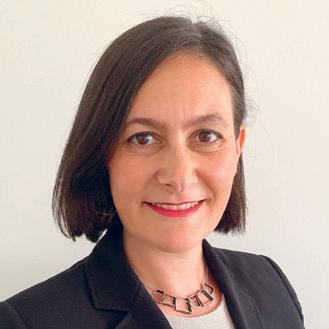
What is your current role and specialisation?
I am an international arbitrator. I decide cases between parties from different countries via the process of international arbitration. This means that they agreed (typically in advance of their dispute, in a contract or treaty) to refer any disputes between them to a neutral decision-maker of their choice, according to a flexible procedure, which leads to a legally binding decision enforceable around the world. I have my own independent practice based in Sydney. But my cases take me around the world for hearings, including recently Singapore, Hong Kong, Madrid, Paris, London and The Hague.
My cases involve a mix of public and private international law, and the parties before me include governments, individuals, and companies large and small. The governing law varies, as does the subject matter (from agriculture to aviation, solar energy to coal; fashion to football, noodle restaurants to defence technology).
What was your pathway towards the private practice of law?
My path that includes both private practice and the public sector and has woven between Sydney, New York, The Hague (with some detours via Canberra and Mauritius).
After graduating from UNSW with a BA/ LLB, I did an LLM at New York University (on Fulbright and Hauser scholarships), then passed the New York bar exam. I returned to Australia to work as a judge’s associate at the High Court then spent a year at Parliament House working with the Attorney-General. I headed back overseas to take up a one-year judicial fellowship at the International Court of Justice in The Hague, before practising as a lawyer in New York. I joined the international arbitration group of White & Case where I worked for five years representing sovereign States and private clients in a variety of arbitrations, and also did some litigation and pro bono work. In 2008, I returned to the Peace

Palace in The Hague to work for the Permanent Court of Arbitration (PCA) for 11 years as Senior Legal Counsel, working with a multinational team on some of the world’s most complex disputes such as the South China Sea, the Yukos investment arbitrations and the Bangladesh Accord arbitrations. In 2019 I decided to return with my family to Australia and set up Levine Arbitration in 2020, and I’ve just accepted my 50th case.
What are the most rewarding and challenging aspects of your work?
Working as an arbitrator offers great variety, intellectual challenge, and flexibility. The variety stems from each case involving colleagues from around the world, interacting with different cultures and legal systems, and learning about different sectors of human endeavour. I always enjoyed the intellectual challenge of problem-solving and decision-making. The flexibility means that it is possible to mix private practice with public service, through, e.g., sitting on government and intergovernmental tribunals; and giving back in other ways, such as by serving as President of the Australian Centre for International Commercial Arbitration (ACICA) and teaching the next generation.
How do you see private practice in international arbitration evolving in the future?
When I started, many practitioners had stumbled into international arbitration after working in litigation, now more people specialise from an earlier stage. When I was in New York, many of my senior colleagues were women, but I only ever appeared before one female arbitrator. There were also very few female arbitrators in PCA cases when I started there in 2008. That was definitely changing by 2019.
As an arbitrator now, I sit with almost as many women as men, and they include lawyers from Africa, Asia, the Middle East as well as Europe and America. Other changes include a trend toward boutique or sole practices, and away from large firms. There has also been a sharp rise of arbitration in the AsiaPacific. In Australia, the depth and extent of experience in the field has hugely increased, as has ACICA’s caseload. The pandemic forced a huge leap forward in the embrace of technology for videoconferences, which has cut costs, environmental impact and enhanced efficiency. AI will be the next leap forwards.
How can ANU students get insight into international arbitration?
Two ways include (a) interning or working as an associate at ACICA; and (b) applying for ANU’s unique fellowship program with the PCA in The Hague.

What is your current role and specialisation?
I am a senior associate with Clayton Utz, specialising in commercial arbitration. I represent clients in commercial disputes ranging from mining offtake agreements, gas sale agreements, joint venture arrangements, and shareholder issues.
What was your pathway towards the private practice of law?
I’m originally from Sydney and secured a Summer Clerkship in DLA Piper’s Sydney office at the start of my final year of University. I set out wanting to be a transactional/projects lawyer. However, that soon changed as I rotated through different groups within the firm during my clerkship, quickly discovering that I much preferred the strategy and team environment of commercial disputes.
Shortly after being admitted as a solicitor in 2013, I was given an opportunity to go on secondment to DLA Piper’s London office. That six-month secondment turned into a total of more than seven years working in London on large-scale, complex commercial arbitrations, investor-state arbitrations, commercial litigation in the English Courts as well as the Singapore International Commercial Court, and even a matter in the International Court of Justice in The Hague acting for Timor-Leste against the Commonwealth of Australia.
What attracted you to private practice?
In the disputes space, private practice provides the opportunity to engage in issues of law, formulating and executing strategies to achieve positive outcomes for clients, and interacting with clients and colleagues in a team environment.
The added benefit of practising as an arbitration lawyer is that I also have the opportunity to conduct written and oral advocacy which is usually the domain of barristers in litigation proceedings. In other words, private practice provides me with the opportunity to have it all.

What are the skills required to be a lawyer in private practice?
Successful private practice lawyers need to not only be skilled at identifying issues, they need to be equally skilled at then clearly and concisely communicating those issues to clients, ideally with a clear and concise solution. It’s easy to raise problems, but the real value is then proposing available course(s) of action to address, overcome, or manage those problems. These skills can take time to develop, so gaining a wide range of experiences in various situations (not just in law firms) pays off in the long run.
What advice would you give your university-aged self?
Private practice requires you to be across many areas of law but there is no substitute for being strong on the fundamentals (e.g., contract law, Corporations Act, privacy, civil procedure, remedies). Having the basics locked down enables you to build specialist skills later (e.g., arbitration).
“Having the basics locked down enables you to build specialist skills later (e�g�, arbitration)�
Selecting elective subjects accordingly is sensible (i�e�, don’t go to niche unless you are certain that’s where you want to specialise)�”
Selecting elective subjects accordingly is sensible (i.e., don’t go to niche unless you are certain that’s where you want to specialise).
Soft skills are equally important to hone now. Participating in university law society competitions such as mooting, witness examination, and client interviews are great opportunities to practice those areas so that when you make it into private practice, you are ahead of the curve for a junior practitioner.

Working as a corporate advisory or in-house lawyer offers the opportunity to provide strategic legal guidance within a business environment.
Rather than acting as an external advisor, in-house lawyers work directly for a company, advising on its legal and commercial interests. This role requires balancing risk management with business objectives, often involving close collaboration with executives, compliance teams, and external counsel.
Corporate advisory and in-house lawyers work across a range of industries, including:
• Banking and financial services
• Technology and telecommunications
• Energy and infrastructure
• Pharmaceuticals and healthcare
• Media and entertainment
• Retail and consumer goods
• Manufacturing and industrial sectors
This career path also provides opportunities to:
• Develop expertise in regulatory compliance and corporate governance
• Engage in high-level commercial decision-making
• Work on cross-border transactions and international business matters
• Collaborate with policymakers and industry regulators
• Specialise in areas such as mergers and acquisitions, intellectual property, or employment law
• Take on leadership roles within a business, including general counsel and executive positions
• Gain exposure to multi-jurisdictional legal frameworks and global risk management
The Corporate Advisory and In-House section covers:
Corporate Advisory
Five Minutes with Mr Fix-It by Leon Zwier
Advising on Tax Issues in a Changing Regulatory Landscape by Ulrika Li
Bridging International Relations, Law and Diplomacy by Sarah McCosker
From the Federal Court to Commercial Law and Beyond by Hannah Luxford
In-House
My journey as an In-House Property Lawyer by Jorgie Gorman
Heart-Led, Purpose-Driven: Succeeding In-House by Bluezzi Lee
Self-Confidence and Persisting Through Challenges by Lucy Price
Building an In-House Career:
DGC at Scentre Group by Mark Burton
From Never to In-House: Don’t Knock It Till You’ve Tried It by Alice Wang

What is your current role and specialisation?
I am currently a litigation and restructuring partner of Arnold Bloch Leibler (ABL), which is a boutique Melbourne- and Sydney-based commercial law firm. ABL is easier understood by what it does not do, namely family law, blue collar crime and personal injury law. ABL describes itself as “lawyers and advisers”—that is because we also advise in relation to the commercial issues and problems that arise.
What was your pathway toward Corporate Advisory?
From the outset of my legal career, I was interested in commercial litigation and complex dispute resolution. As a graduate, I was often thrown into smaller contractual disputes, and frankly, debt collection, but the legal principles of those smaller disputes were no different to those of more complex litigation. I initially focused on learning black-letter law and being across procedure. I also enjoyed being involved in processes like discovery—however unfashionable it may be to make such an admission—because I recognised that lawyers with a detailed knowledge of the facts are always more likely to succeed.
I was attracted to litigation for a few reasons. First, I could see that litigation had such depth and breadth. The areas of law traversed by litigation were vast and I liked that. Second, I enjoyed interactions and working with the Bar. I loved going to Court and observing advocacy up close: good and bad. As a graduate, I was also exposed to brilliant, savvy, and worldly clients and advisers. I was very lucky that many of my earlier clients were new Australians with an unparalleled drive to succeed. They educated me to advise about risk management and not to pursue, like most lawyers, a policy of risk aversion. There is a correlation between risk and reward. A major trading bank deposit produces a risk-free return. Other investments produce higher returns commensurate to the risk. I thrived in that environment and advocated forcefully on behalf of my clients. I encountered

early successes in and out of Court, but later realised that commercial litigation is only one process available to resolving commercial disputes.
I was first exposed to corporate restructuring early in my career and especially enjoyed that area of practice. It is an area of law where disputes are often heard and determined quickly without too much argument about facts and with very few documents. It is also an area in which one needs to work with an array of different stakeholders. And as the restructuring work became bigger, I could see enormous scope for commercial solutions to preserve companies, jobs, reputations, and key industries. The work often traversed Federal and State Government policy or interest and attracted media. The problems that we were resolving were not just blackletter law problems, but ones which often required strategic planning and careful management.
What are the most challenging aspects of working in Corporate Advisory?
Complex problems require careful thought and analysis, but the nature and speed of communications make that hard to find. I believe that maintaining
good mental health is one of the biggest challenges faced by the profession today, due to, amongst other things, client expectations and the pressures of availability and connectivity. Clients, counsel, advisers, and opponents expect almost instantaneous responses to their communications. It is harder than ever to find a time and place for restful disconnection.
What advice would you give your university-aged self?
If I could advise my university-age self, I would tell myself that at the core of the legal profession is black-letter law. And the academic teaching, of which I was sometimes disrespectful, is so important. That is not to say it begins and ends with black-letter law. It only begins with it.
I would also better appreciate that the students with whom I was learning were also likely to be members of the legal profession and therefore positive engagement with them during university was also important for professional life. I would also better understand that being a lawyer is a rewarding, diverse, and challenging life choice and profession.
Ulrika Li

What is your current role and specialisation?
I am a Senior Lawyer in the Sydney Tax Controversy and Dispute Resolution team at PwC. My role primarily involves advising and representing national and multinational corporations and high-net-worth individuals in managing tax risks and resolving disputes with revenue authorities. I work on a range of federal and state tax law matters, with a focus on managing contentious tax issues arising from company restructurings, group consolidations, transfer pricing, fringe benefits and residency status. I also assist clients across various industries in responding to ATO audit management plans and developing litigation and settlement frameworks.
Some of my day-to-day responsibilities include conducting complex evidence gathering, drafting correspondence to the ATO and clients, collating submissions and preparing filings for court.
What was your pathway towards becoming a tax lawyer?
My pathway to becoming a tax lawyer with a focus on managing tax disputes has been shaped by my combined interests in tax law, litigation and public administration.
I graduated from ANU with a double Commerce/Law degree in 2022. While at university, I studied tax law under Professor Michael Kobetsky, which first piqued my interest in tax. I then landed a traineeship with a local tax advisory firm in Canberra, where I assisted in providing corporate and income tax advisory services. It was a rewarding experience because I was able to apply what I had learned in university to realworld situations and help clients with issues including taxation of revenue, capital gains, deductions, and trusts. At the same time, after having some mooting experience, I was also drawn to working in litigation and court advocacy. My current role allows me to combine these interests in one place. Not only do I gain exposure to dealing with general tax law provisions in complex matters, but

I also work with the administrative side of tax, such as assisting clients in lodging objections to assessments and appealing to the AAT or the Federal Court pursuant to the Tax Administration Act 1953
Currently, I am undertaking the Chartered Tax Adviser (CTA) Program at the Tax Institute.
What role do tax lawyers play in our society?
While many may think tax is boring, working as a tax lawyer has made me realise the importance of tax law in the functioning of our society, which concerns both the government and taxpayers. Tax is present in many aspects of our lives, whether through the derivation of income or making a sale or purchase. It is, I think, one of the most interesting and challenging areas of law. Lawful compliance with one’s tax obligations is essential, yet this is not always easy to achieve for taxpayers. For instance, the Tax Acts are amongst the longest statute books in Australia. As such, tax lawyers play a critical role in advising individuals and businesses on the tax implications of
various financial transactions, business operations and personal financial decisions.
Tax is also an area of law that is constantly evolving. As a tax lawyer, I often need to keep up to date with the latest judgments, ATO rulings and practical compliance guidelines. This is especially important in topical issues such as anti-avoidance, transfer pricing and loans by private companies.
What advice would you give your university-aged self?
Be excited, confident and experimental, and enjoy every work experience you encounter. Not everyone at university would know straightaway what area of law interests them, or even whether law is what they want to pursue as a career. I recommend exploring a few different types of experiences during university (e.g. working as a paralegal in a field of law that you would like to learn more about, becoming a research assistant for a barrister, participating in a moot or trying something outside of law). Be honest with yourself about what you like and don’t like to do.
Sarah McCosker

What is your current role and specialisation?
I am a Partner and Co-Founder of Lexbridge, a law firm and consultancy focusing on public international law, government law and regulation, and related policy issues. Lexbridge is the first and only law firm of its kind in the Asia-Pacific Region. My principal areas of specialisation are international humanitarian law, international human rights law, negotiation of intergovernmental instruments and the relationships between international law and diplomacy. I also undertake significant work in training, capacity-building and legislative reform.
What was your pathway towards International Law?
I was first introduced to international law through my undergraduate studies at the University of Queensland, where I completed a BA (Hons I)/LLB (Hons I) and participated in the Jessup International Law Moot Competition— a formative experience in cultivating a keen interest in international law.
I served as an Associate to a Judge of the Supreme Court of Queensland, then was admitted as a barrister before moving to the UK to undertake a masters in international law at the University of Oxford (Bachelor of Civil Law). I followed that up with a second masters in international law (Master of Philosophy), and then my doctorate, on the relationships between international law and diplomacy in international dispute settlement. While in the UK I also enjoyed teaching international law to diplomats on the Oxford Foreign Service Programme, working at the Law Commission of England and Wales, and leading Oxford’s pro bono international law centre (Oxford Pro Bono Publico).
On returning to Australia I worked for many years as a legal adviser in the Office of International Law in the AttorneyGeneral’s Department, predominantly on human rights, humanitarian law, defence and security matters—before moving to Geneva to serve as a legal adviser for the

International Committee of the Red Cross. Following that I co-founded Lexbridge Lawyers, and have been working there as a Partner for the last ten years.
What attracted you to international law?
Many things—but in particular, the relationships between international law and diplomacy and the roles international law can play in advancing society and elevating the quality of people’s lives globally. From my childhood, I have had a strong interest in international relations, being a “third culture kid” as the daughter of a diplomat, moving frequently between countries and cultures. I therefore had a natural leaning towards a career in diplomacy, but through my law studies became fascinated by the interactions and interdependencies between law and diplomacy.
Accordingly, much of my professional career has involved operating at the interface of law, diplomacy and international relations. International lawyers working for governments or international organisations tend to have hybrid identities—as “lawyerdiplomats”—and much of my career has involved building bridges between different communities of practice, across government, academia, the private sector and civil society. International law also appeals to me because of the roles it plays in establishing and maintaining the principles of peaceful coexistence and peaceful settlement of
disputes, guiding the behaviour of States and individuals, and promoting justice and accountability for wrongdoing.
What are the skills required to be an international lawyer?
• The ability to assimilate large volumes of complex information, and to analyse and synthesise it to develop clear conclusions, recommendations and practical solutions for one’s client.
• The ability to situate the law in context, and understand the relationships between law, policy and politics.
• Strong skills in oral and written communication and argumentation.
• Openness to life-long learning, as international law is always growing and evolving.
What advice would you give your university-aged self?
Don’t feel pressure to do everything at once, or to think that there is one “right” pathway for an international law career; there are multiple pathways and opportunities, not one set pathway.
Take a long-term, big-picture view: your career is long and you can have multiple chapters within it, in which you work in different settings and different roles. Be open to change and ongoing learning—as throughout your career there will be many opportunities that arise unexpectedly, and you can work across a range of subject matter areas over time. And make sure to enjoy life along the way!
Hannah Luxford

What is your current role and specialisation?
I’m a Senior Associate at King & Wood Mallesons (KWM) in Canberra. I specialise in commercial dispute resolution, including class actions. I also work in the area of regulatory investigations and commissions, including Royal Commissions and anticorruption commissions.
What was your pathway towards corporate advisory?
My pathway to my current role started as a judge’s associate in the Federal Court in Sydney. After graduating from university, I completed a year working as the Associate to Rares J. Some highlights from my year at the Federal Court included assisting the judge with the trial of a class action against a financial institution, attending a native title consent determination on country in North Queensland, and assisting with a jury trial of a criminal matter in the ACT Supreme Court.
Following my year at the Court, I worked as a Law Graduate and then a Solicitor at the KWM Sydney office. I worked in competition litigation for a few years, before taking parental leave after my first child was born. Shortly after returning to work at KWM part-time, I went on secondment to the Capability Acquisition and Sustainment Group at the Department of Defence in Sydney, where I worked as a lawyer in the commercial procurement area.
On moving back to Canberra (my hometown) in 2019 after my second child was born, I joined the Australian Public Service and worked as a lawyer in the commercial legal area within the Department of Defence, doing work similar to what I had done on secondment.
In 2021, I re-joined KWM in Canberra. My practice since then has focused on work for the Commonwealth as well as private clients in class actions, contract and procurement disputes, and in regulatory investigations and commission hearings (including Royal Commissions and anticorruption commissions).

Some of the skills needed in my current role as a dispute resolution lawyer at KWM include being organised, planning ahead, being able to build trusted relationships, having strong attention to detail, and thinking strategically. There isn’t a fixed set of skills that are needed though. I usually work on large-scale matters in big teams, and I like that each person will bring their own strengths to the team, and we can harness those when we work together.
What advice would you give your university-aged self?
Keep working hard and do your best at university as those results do matter. Everything will work out OK and that decision to broaden your practice into other areas will make you a better lawyer in the long run. Stay true to yourself and remember trust and integrity are
important. Prioritise building strong relationships with your colleagues and always show respect and care for them— they will be vital to your success. Also, law and working are not the most important things in life.
How do you see corporate advisory evolving in the future?
I’m interested in seeing new matters arise in the state and territory integrity commissions and the federal anticorruption commission, as the focus on accountability and integrity within the public sector continues. I am interested in advising private companies in connection with these investigations, particularly those involved in government procurements. Of course, using AI in legal practice may mean that what we spend significant periods of time on now as a lawyer may change. I’m working on embedding AI use into my legal practice where appropriate and I’m excited to leverage all the efficiencies I can from it.

What is your current role and specialisation?
I graduated from ANU in 2005 with a Bachelor of Arts (BA) Major in Sociology and Political Science, Bachelor of Laws (LLB), and a Graduate Diploma in Legal Practice (ANU).
I have 18 years’ experience working as a corporate and real estate lawyer in both the private and in-house sectors.
What was your pathway towards becoming an in-house lawyer?
After graduating from ANU in 2005, I worked in private practice as a commercial real estate lawyer in Canberra, starting out as a graduate lawyer and progressing to Senior Associate. When I was on maternity leave in 2013, I decided to go back to university and study a property and real estate degree online. I had always been interested in property and wanted to learn more about the industry that my clients worked in. I really enjoyed learning about construction, valuations, sustainability, and gaining this more practical knowledge of the property industry. I thought that having a legal background particularly in contract law and commercial sales and leasing, would be a niche skillset and asset in a real estate company.
I obtained my real estate licence and started looking for commercial property management roles. In 2015, I joined Knight Frank as a property manager. It was such a massive learning curve for me, managing one of the biggest properties in Canberra and navigating budgets and accrual accounting was certainly a challenge. After working as a property manager for 3 years, I had an opportunity to apply for a national in-house lawyer role at Knight Frank. While I was enjoying the career change working in property management, I had always aspired to an in-house position and the opportunity to work alongside the highly respected General Counsel and practice law again minus the billable hours was very appealing. My application was successful, and I was appointed as Legal Counsel in 2018. In 2020, I was promoted to Partner, Senior Legal Counsel and my role expanded

“I try to be proactive and collaborative in my approach and the more I can understand about the commercial drivers, the unique needs and priorities of my clients, this allows me to deliver the most effective legal advice�”
to oversee the legal operations of the business in the Asia Pacific. I absolutely love collaborating with different teams across the region and the variety of legal work certainly keeps things interesting.
What skills or experiences have been key to your success as an in-house lawyer?
Working in-house, you need to have a general knowledge of a wide range of areas of the law, rather than just specialise in one area so you need to be open to continuous learning and be inquisitive. I specialise in corporate, real estate, employment, privacy and intellectual property law, along with legal and regulatory compliance, risk management and corporate governance. My expertise includes high-profile acquisitions, divestments, and leasing across various asset classes—office,
retail, industrial, and residential projects. I also have extensive experience in asset management, global property advisory, construction, and project management.
What are the most challenging aspects of being an in-house lawyer?
One of the most challenging aspects of being an in-house lawyer is balancing legal compliance with business objectives, as these can sometimes conflict. You need to be client-focused and commercially minded, adept at balancing business and financial objectives with risk mitigation to achieve optimal legal and commercial outcomes.
I try to be proactive and collaborative in my approach and the more I can understand about the commercial drivers, the unique needs and priorities of my clients, this allows me to deliver the most effective legal advice. I often think back to something one of my lecturers said in law school at ANU which has always stayed with me. She said that being a lawyer is like being a doctor. People come to you with a problem that they want you to fix so you need to be a good listener, empathetic and be able to communicate with them clearly and effectively. To me this is the key to being a good lawyer, obviously you need to have the technical knowledge, but the most important thing is being able to listen to what your clients need and communicate clearly.
Bluezzi Lee
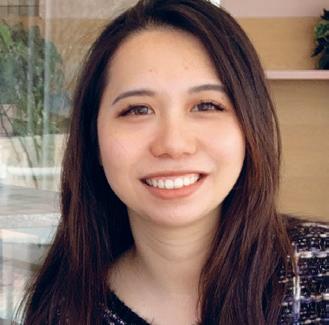
What is your current role and specialisation?
Legal Counsel at ColgatePalmolive.
I am in a generalist role but most often deal with contracts, advertising, competition & consumer as well as privacy.
What was your pathway towards becoming an in-house lawyer?
I did private practice for a while and very soon realised that it was not the right fit for me. I knew I wanted a career in law so I explored other venues (legal aid, courts/tribunal etc.) and landed with in-house eventually.
What attracted you to working in-house?
Opportunities of constantly learning new things. Unlike private practice where you may typically become a specialist in certain areas of law and rarely touch upon others, in house roles allow me to explore and, in a way, force me out of my comfort zone to learn aspects of the law that are unfamiliar and evolving.
In-house roles can also be crossjurisdictional, particularly in multinational companies, and in my role I get to work with a lot of stakeholders and legal experts from different jurisdictions which offers great learning opportunities.
What skills or experiences have been key to your success as an in-house lawyer?
A genuine willingness to support business growth (and for that one needs to be in a business/industry they truly enjoy and/or appreciate), combined with the solid legal foundations that the ANU degree equips us with.
What are the most rewarding aspects of working in your current specialisation?
Reviewing advertising claims can be very fun and challenging from a consumer law perspective, it also deepens my understanding of the business which in turn allows me to do my job better. The sense of achievement when you

see something you’ve reviewed on the street/online is also quite incredible.
“Unlike private practice where you may typically become a specialist in certain areas of law and rarely touch upon others, in house roles allow me to explore and, in a way, force me out of my comfort zone to learn aspects of the law that are unfamiliar and evolving�”
What advice would you give your university-aged self?
Life can only be lived forward, but understood backwards. Follow your heart, but use your brain :)
What are the most challenging aspects of being an in-house lawyer?
Be brave enough to say, “I don’t know”— easier said than done, especially when you are sitting with your clients in the same office and get asked random questions all the time!
But admitting that you don’t know doesn’t take away your power, instead it empowers you to do better, and it helps with relationship and trust-building as well.
Lucy Price

What is your current role and specialisation?
I am currently serving as Legal Counsel at Deloitte Australia, where I specialise in commercial law, with a particular focus on technology contracting. My role involves reviewing and negotiating a wide range of client contracts between Deloitte’s partners and their clients. One of the aspects I most enjoy is the opportunity to engage with so many contracts across Australia’s top 200 companies, which provides constant variety and new challenges.
What was your pathway towards becoming an in-house lawyer?
I began my legal career as a graduate at HWL Ebsworth in Canberra, where I had the opportunity to rotate between both the administrative law and commercial law teams. It didn’t take long for me to realise that I was far more drawn to transactional work than litigious matters, so I decided to focus my career in the commercial law team. My primary area of work involved large-scale Commonwealth government procurement.
During this time, I had the chance to complete several secondments to inhouse teams across the Commonwealth government, and it became clear to me that I preferred being on the “inside” rather than acting as an external advisor. These formative experiences in Canberra were incredibly valuable when I transitioned to Deloitte, as they gave me a strong foundation in both the buy-side and sell-side of commercial transactions.
What skills or experiences have been key to your success as an in-house lawyer?
For me, two key factors have significantly contributed to my success: a pragmatic approach and the ability to remain calm under pressure. In-house legal work is rarely straightforward, and solutions are rarely one-size-fits-all. Each day brings new, sometimes unpredictable, challenges. To succeed, it’s crucial to remain solutions-oriented and to bring a sense of ease to business stakeholders— many of whom are already feeling the

pressure of involving legal in the first place.
My second degree in Politics, Philosophy, and Economics (PPE) has also proven invaluable. The combination of economics with political theory and philosophy has enhanced my ability to assess commercial risks with greater clarity. Every day, I find myself balancing the potential risks to the business against the commercial risks of not signing a deal.
My background in microeconomics has given me the analytical tools I need to make well-informed decisions when weighing these risks. So my advice is to push through with those hard subjects which don’t feel too relevant at the time, because you don’t realise how much you are learning until you are out the other side.
What are the most rewarding aspects of working in-house?
The most rewarding aspect of working in-house is knowing that my work directly impacts the business. Each contract I negotiate contributes to the success
of the stakeholders I represent. There is a unique satisfaction in shaping the business from within, knowing that every piece of work I touch leads to a tangible outcome. I also find great fulfilment in building close, trusting relationships with business stakeholders. They know they can rely on me to provide commercial, practical solutions to legal challenges— no matter how big or small.
What advice would you give your university-aged self?
If I could give advice to my universityaged self, it would be this: You are smarter and more capable than you think. I struggled with self-confidence during law school, particularly when it came to applying for graduate roles. I often found myself comparing my progress to others, and it took some time to secure my first position. But looking back, I see that the resilience I developed through this process was invaluable. It taught me the importance of persistence and self-belief. Ultimately, you will only inspire others to believe in you if you first believe in yourself.
Mark Burton

What is your current role and specialisation?
I am the Deputy General Counsel – Developments at Scentre Group (the owner and operator of Westfield in Australia and New Zealand).
I currently manage legal work arising from the development, design and construction, and asset management divisions of Scentre Group in Australia and New Zealand. This includes:
• the development of existing Westfield centres and greenfield opportunities;
• negotiation of major tenant and key international tenant leases;
• acting on major asset acquisitions and disposals;
• negotiation of, and advising on, joint venture agreements including project design and construct agreements; and
• negotiation of a diverse range of agreements with various local government and other authorities.
What was your pathway towards becoming an in-house lawyer?
After obtaining my LLB from Queensland University of Technology in 1995, I completed two years articles of clerkship with a firm called Flower & Hart in Brisbane. At that time completing your articles was still the primary way to be admitted in Queensland. After rotating through a few different areas of the firm I found property law to be my calling— primarily due to the opportunity I had to work with and be mentored by certain experienced practitioners who exposed me to a wide range of clients and their property matters and took the time to provide me with practical advice and guidance.
After admission and working for a couple of years as a solicitor, I moved to London, where I qualified as a UK lawyer through the QLTT process (now SQE). After a brief stint with a local authority in London, I secured a position with a twopartner niche construction and property law firm, where I oversaw their property law matters.

In 2005, I returned to Sydney, where I joined Westfield Group (now Scentre Group) as a corporate solicitor and have remained ever since.
What attracted you to working in-house?
Having worked in smaller law firms and overseas, upon my return to Australia I wanted to join a larger organisation with international exposure. I also wanted to be more involved in the strategy of decisions as opposed to just carrying out instructions after decisions had been made.
An in-house role with an international property development firm seemed a perfect fit. At that time, Westfield was expanding into the US and UK as well as possessing a large pipeline of development work in Australia. In terms of property law work, I thought that it couldn’t get much better.
What are the most rewarding aspects of working in your current specialisation?
In working for a retail property development and management company, it is very rewarding to be able go to a building or a shopping centre where you have been part of its creation. From negotiating the contract to acquire the land, battling with authorities to
obtain approvals to inking deals with major tenants through to managing the construction contracts to build the centre there is an immense satisfaction when visiting as you know the the blood, sweat, and tears that have gone into the process to create such a visible and public place.
As my role involves me physically working alongside my “clients” I am very accessible to them. This means there is no hiding but also allows conversations to happen quickly and advice provided on the spot. This allows me to be involved in all matters as they arise and I am able to provide input and guidance from a very early stage. It can feel like flying by the seat of your pants sometimes, but there is a great feeling when ideas come together quickly and outcomes are achieved in record time.
Working in-house also means you are working with many other areas of the business, which broadens your horizons and experience. It also provides opportunities to move into different areas over time. It is also more like being involved in a team sport where you work closely with other team members who are mostly non-lawyers and who have their own specialisations.
When we all come together on enterprisewide projects, this leads to a high degree of camaraderie and it is great when our combined goals are achieved.

What is your current role and specialisation?
I am currently an in-house lawyer at the Australian subsidiary of a global tech giant (Samsung Electronics Australia), in our Legal, Compliance and Audit team. As part of a small team of lawyers that provides legal advice and counsel to the business’ whole Australian operation, our focus is providing concise and timely guidance on a whole range of issues. From reviewing contracts to general marketing material, juggling Australian regulations and global priorities—I would say that my specialisation is being a generalist.
What was your pathway to in-house?
I finished my undergraduate studies at ANU in the midst of the pandemic years—2020—after having made a decision that I wouldn’t go into the legal field or ever become a lawyer. I took a role in my previous organisation’s generalist grad program and rotated through a number of very different teams. After five teams and fourteen months, I found that the place that I would fit best was the General Counsel team. I was lucky that the business supported me during my PLT, providing financial aid and additional study leave.
My pathway towards “in house” really didn’t take much time at all once I had worked out it was what I wanted as I was already well acquainted with the organisation and the General Counsel team. The actual time-consuming part was coming to the realisation and making the decision that I wanted to become a lawyer.
What are the most rewarding and challenging aspects of working as an in-house lawyer?
The most rewarding and the most challenging aspects of working in-house are really the same thing. In-house lawyers are the go-to within an organisation for all legal questions regardless of the area of law. This could be anything from updates to Australian consumer law to updates to employment law, from advice about new AI features to helping upgrade old processes.

You never know what kind of questions or advice requests you’ll receive each day, which can be challenging, as every day carries some uncertainty. But it’s also rewarding since you’ll constantly be learning and upskilling.
What advice would you give your university-aged self?
I would tell my university self not to be so set on deciding that being a lawyer wasn’t for me without having a good understanding of what it was like being a lawyer in a variety of different areas, that studying law is very different from practising law. I was in such a hurry to declare what that I would and wouldn’t
do for the rest of my career. You’re only at the start of your journey so it’s OK if you can’t see every single thing on the path.
Take the time to work out what you really want to do, what you’re good at, and what you enjoy. Even if these things aren’t things that’ll go on your resume, you’ll learn things about yourself in the process.
And actually apply for some legal internships and experience what it’s like to work as a lawyer in the real world and not just read about the law from a textbook. There are things that you’ll learn once you start working that you could’ve had some exposure to doing internships in uni.

A career as an associate, tipstaff, judicial registrar, barrister, or prosecutor offers graduates a front-row seat to the law in action. These pathways provide a real sense of participation in the advocacy process, achieving just outcomes to legal disputes.
Many law graduates will pursue a role as an associate or tipstaff in a state or territory court, the Federal Court, or the High Court. Associates and tipstaff work directly with judges. Their specific duties vary depending on the jurisdiction of the court. In large part, however, they will engage in legal research, drafting, and general administrative tasks.
These opportunities provide immense insight into judicial reasoning, the process of dispute resolution, the inner workings of the courts, and the relationship between judges, associates,
Resources


solicitors, and barristers. For graduates wishing to explore a career as a barrister in particular, the exposure, experience, and network gained from associateships is invaluable.
Many who pursue a career at the Bar are drawn to it by the intellectual stimulation and thrill of judicial advocacy it provides.
There are a number of pathways to the Bar. Some graduates will go straight to the Bar from university. Others will gain career experience working as solicitors, associates, or tipstaff beforehand.


Here at the ANU, there are an abundance of opportunities in the public law space on our doorstep.
The Courts, the Bar and Advocacy section covers:
Judiciary
The Law Can Be Brutal, but It Can Also Be Incredibly Rewarding by Marcus Malouf
The Bar Law and Order:
From a Prosecutor to an Independent Advocate by Katrina Musgrove
Life at the Bar: Tips and Tricks to Achieving Balance by Josie Dempster
Pre-penultimate students should keep their eyes peeled for opportunities to work within the Courts, the ACT or Federal Office of Public Prosecutions, or a Barrister’s Chambers.

but It

What is your current role and specialisation?
I currently work as an Associate to a Magistrate at the ACT Magistrates Court, where I appear in court every day dealing with matters from the level of first instance charges and bail, all the way to week-long hearings. I am working toward two specialisations in my degree, the first being public law (with a keen interest in criminal litigation) and the second being international and comparative law.
What was your pathway towards the judiciary?
I started my journey toward the judiciary when discovering that despite having a keen passion for international relations, I found criminal litigation far more interesting and rewarding in the sense of having a direct impact on the communities and lives around me. I applied to work as a paralegal at the ACT DPP where I spent nearly three years in various teams, including, but not limited to, the Family Violence and Sex Offence teams, the Supreme Court, and the Court of Appeal teams.
What attracted you towards the judiciary?
What attracted me most toward the judiciary was public advocacy and litigation in the court room. In my current role I have the privilege of being able to learn first-hand from lawyers of varying stages in their careers and see the realworld application of the concepts and thoughts that are often otherwise left behind in an hour-long tutorial.
What are the skills required to work in the judiciary?
The skills that are required to work in the judiciary largely depend on where in the judiciary you intend on working. For example, a paralegal-like role would require sound time management, organisation skills and the ability to work collaboratively. However, in my current role, on top of those, one also requires a foundation of research knowledge and skills, and a general practical understanding of the application of

specific legal concepts and the ability to acknowledge when you don’t know the answer and ask. Being involved in the court room has enabled me to see these skills firsthand on both sides of the bar table, and I firmly believe an understanding and acceptance of one’s weaker skills is crucial to personal development in these practical legal skills.
I believe, however, the most important skill required for working in the judiciary is that of compassion. Too often, in our current climate, compassion for others—no matter their background or circumstance—is lost. Without compassion we cannot work effectively with others, nor can we truly appreciate the impact we have in the roles we do and aspire to be in.
What advice would you give your university-aged self?
The main piece of advice I would give myself and anyone starting their legal journey, is to back yourself. Too often I found it terrifying to raise a hand or ask a question I thought was silly and
“In my current role I have the privilege of being able to learn first-hand from lawyers of varying stages in their careers and see the real-world application of the concepts and thoughts that are often otherwise left behind in an hour-long tutorial�”
so therefore never discovered the answer for fear of getting it wrong. It is so important to put yourself out there and accept that you will not always be right or know the answer and therefore failure is inevitable, but is crucial to personal growth and core development in understanding the law. It is there to instruct and teach and steer you in the right direction. The law can be brutal, but it can also be incredibly rewarding. Asking questions is fundamental to having a long and successful legal career.

What is your current role and specialisation?
My current role is barrister at Key Chambers; I am entering my ninth year at the Bar. I do not have a specialisation; my practice is quite diverse and that is intentionally so. My areas of practice include crime, care and protection matters, coronial matters, administrative law and Royal Commissions.
What was your pathway towards the Bar?
My pathway to the Bar was unconventional but interesting.
My initial degree after high school was a Bachelor of Hospitality, which was essentially a business degree with a focus on hospitality management. On completion of that degree, I held a number of managerial roles in the hospitality, retail and recruitment fields. I also spent a number of years travelling, including working on the QE2 cruise ship for a period of time, seeing the world.
I decided to study law in my early 30s; I enrolled full-time in straight law at UTas and completed my degree in three years and was awarded first-class honours.
During my third year, I was pregnant with our first child; he was born 6 weeks before my final assessment. I then studied my Graduate Diploma in Legal Practice at ANU and was admitted thereafter. I then studied my Masters in Legal Practice at ANU whilst at home with two children.
My first legal role was at Blumers, where I stayed for 6 months before having our third child. After that, I worked at the ACTDPP for 2 years as a prosecutor, followed by 5 years at the Commonwealth DPP as a senior prosecutor.
I was then called to the Bar in 2016.
What attracted you to the Bar?
A number of aspects attracted me to the Bar. The primary factor was a desire to undertake advocacy. As a prosecutor, I had experienced the thrill and sometimes sheer terror of advocacy and I wanted more of it. I was also attracted to the diversity at the Bar; no two matters are

the same and as my practice is varied, it provides me with intellectual challenge and variety I enjoy. The other aspect of the Bar that appealed to me was the autonomy of being self-employed and ultimately being responsible for the decisions I make.
What are the skills required to be a barrister?
There are a number of skills required to be a good barrister. Knowledge of the law, especially the Evidence Act, and the ability to learn quickly and legal research are some of the primary skills required and they probably go without saying.
The skills often overlooked but critical are management skills. Time management is absolutely essential; if you can’t manage your time, you will be forever chasing your tail, late with work and late to court. That adds unnecessary levels of stress and annoyance not only in your own life and practice but more importantly to your instructing solicitor, perhaps your client and definitely to the Court. Self-discipline is also another critical skill; when the pressure is on you need to be able to step up and perform and that often means choosing work over social activities, time with family and often sleep.
You also need to be able to admit your mistakes and learn from them. They hurt, it is painful but to improve you need to be honest with yourself.
The other skills I think are critical to being an effective barrister are communication and people skills. The ability to relate to people, communicate effectively, listen properly and manage relationships and expectations are critical. Such skills are used daily, whether it be in taking instructions, crafting submissions, addressing the Court or in crossexamination. It is these skills that I developed in my myriad jobs before law that really assist me in being an effective barrister.
What advice would you give your university-aged self?
Be brave in your choices, follow your passions and back yourself. Importantly, be humble and realistic enough to admit you do not know everything, cannot do everything perfectly, and sometimes will need a little help, and recognise that is OK. Have fun and try to make positive change, however small that may be.
Josie Dempster

What is your current role and specialisation?
I came to the Bar in 2018, after working for three years as a solicitor in the commercial insurance litigation space.
My practice at the Bar includes administrative review, discrimination and human rights law, common law and torts, and statutory workers’ compensation (with a focus on psychiatric injury claims).
What are the skills required to work at the Bar?
Technical legal skills can be taught and developed. Good advocacy also takes practice—and many of us at the Bar are still learning and honing our skills!
Personal attributes like determination and self-discipline will help you through the difficult and demanding times at the Bar.
And, because you should never forget that life is short and there are things in this world that are far more important than our careers, it also pays to be kind, patient, and to have a sense of humour.
What are the most rewarding and challenging aspects of working at the Bar?
I love the intellectual stimulation, the variety of the work, the autonomy, the flexibility… the list goes on!
Of course, working for—and by— yourself inevitably comes with challenges, including a lack of financial or other support when you are unwell, being required to work whatever hours or days are needed to meet deadlines and, sometimes, feeling an overwhelming sense of pressure to perform!
What advice would you give your university-aged self?
Enjoy life before it all gets too serious. Take that holiday to Greece!


ANU students are known for their keen interest in politics, foreign affairs, and social justice. Public law offers the perfect opportunity to utilise those interests in tandem with the skills developed through law school.
The pathways in public law are extremely diverse. Public servants may begin their career in a graduate program at the Attorney-General’s Department, transition to the Australian Government Solicitor, and settle in the Treasury in its law division. Diplomats may begin




their career at the Department of Foreign Affairs and Trade, before travelling to work in an international embassy, a consulate, or for the United Nations. There is no single avenue, rather a number of flexible pathways with a great deal of fluidity and choice.




The Public Service section covers:
Contributing to Australian Society as a Government Lawyer by James Gaetani
Crossing the Public-Private Bridge: Working at the AGS by Alison McCook
Public Service: A Career with a Purpose by Ashish Nagesh
Consider a Legal Career in the Public Service by Elise Trenbath
Working as a Government Lawyer in Sydney by Natalie Seeto




I am Special Counsel in the National Indigenous Australians Agency (NIAA). The NIAA implements the Australian Government’s policies and programs to enable the selfdetermination and aspirations of First Nations communities. In my role, I advise on public law matters within the agency. I am also a Sir Roland Wilson Scholar in the ANU Law School. The Sir Roland Wilson program provides opportunities for APS employees to complete PhD research on topics of national significance.
Governments at all levels have long grappled with supporting reconciliation in Australia. My doctoral research explores how this may be assisted through Australian law respectfully creating spaces for the operation of Indigenous laws and other norms. This includes developing ways to improve the capability of legal and government officials to engage with the nuances and complexities of managing interacting legal systems.
Whilst undertaking my LLB at the ANU Law School, I developed an interest in public law. I also wanted to practice law in fields that improve the lives of Australians. With these two matters in mind, I was attracted to a career in public service. My first job after graduation was as a paralegal in the NSW Crown Solicitor’s Office. In this role, I worked in the areas of public safety and justice. I assisted solicitors to advise the NSW Government on exercising different types of executive powers, including with respect to high-risk offenders, the prerogative of mercy, and AVOs. I then moved to the Department of the Prime Minister and Cabinet through its graduate programme.
When it was established, I joined the NIAA. As Special Counsel in the Legal Services Branch, I lead teams of government lawyers to advise on major public law reforms and government decision-making. This involves advising on the intersections of constitutional and administrative law and Indigenous rights, particularly in the design of new
legislation, exercises of government power, and the interpretation of statute. For example, I have advised on the creation of new Indigenous representative bodies, the establishment of support programs for Indigenous university students, and oversight of statutory bodies. One of the matters I am most proud to have worked on was the design, establishment, and implementation of the Territories Stolen Generations Redress Scheme. This scheme provides support to Stolen Generations survivors in the Northern Territory, the Australian Capital Territory, and the Jervis Bay Territory.
Working as a government lawyer has provided me with many professional opportunities. I have been able to learn from senior lawyers within expert legal practices. I have participated in mentoring and conferences specifically for government lawyers through the Australian Government Legal Service (a professional network of government lawyers across the Commonwealth). I have engaged in intellectually rigorous areas of policy, such as native title and land rights. I have had the privilege of working on the ground with Indigenous communities in west Kimberley, Central Australia, and East Arnhem Land.
Through my PhD studies, I have deepened my knowledge of Indigenous-State relations around the common-law world. I have been able to conduct and present my research in Canada, New Zealand, and Singapore. Other opportunities offered by the NIAA include flexible work arrangements, cultural learning programs, and a national footprint with employees working in urban, regional, and remote locations across Australia. The NIAA Legal Services Branch also provides opportunities for graduates to undertake their practical legal training.
The APS offers many career paths for lawyers. Some opportunities include working for the Australian Government Solicitor (AGS) and the Office of Parliamentary Counsel (OPC). AGS provides specialist legal advice across the Commonwealth, whilst OPC specialises in drafting legislation. I work as an in-house lawyer. Most APS departments will have an in-house
“The APS offers many career paths for lawyers� Some opportunities include working for the Australian Government Solicitor (AGS) and the Office of Parliamentary Counsel (OPC)� AGS provides specialist legal advice across the Commonwealth, whilst OPC specialises in drafting legislation�”
legal team. In my experience, in-house lawyers generally work across three areas. A core component of government lawyering is preparing written and oral advices on the legal compliance of the government’s work. To do so, a government lawyer needs well-honed and adaptable communication skills. On any given day, you may be called upon to advise the Minister, the head of your department, or your APS colleagues.
A government lawyer will be responsible for managing litigation on behalf of their department. This involves working with litigators and counsel to commence or respond to court and tribunal proceedings. Government lawyering also involves managing the drafting of new legislation. In doing this, you will have early exposure to the development of public policy reforms. This is a rewarding experience, as you directly contribute to the shaping of decisions that can improve Australian society. It also challenges you to think proactively about possible legal issues that may arise in the future. As a result, it is often necessary to have a sense of creativity in developing sound legal solutions to novel problems.
Working as a government lawyer has enabled me to advise in fascinating and complex areas of law. It has also allowed me to use my legal skills to contribute meaningfully to the self-determination and aspirations of First Nations communities. If these factors appeal to you, I recommend you consider a career as a government lawyer.
Alison McCook

What is your current role and specialisation?
I am a lawyer at the Australian Government Solicitor (AGS), where I work in the Civil Regulation team. We conduct litigation for all kinds of Commonwealth regulators, from financial regulators like the Australian Securities and Investments Commission (ASIC) to sector-specific bodies like the Clean Energy Regulator or the Australian Communications and Media Authority. We also work throughout Australia— I’m based in Sydney, but I work with team members in Brisbane, Melbourne, Canberra and elsewhere.
I’ve been fortunate to work on a variety of big and small matters, whether it’s helping with cartel investigations for the Australian Competition and Consumer Commission, or acting for the eSafety Commissioner in litigation over the non-consensual publication of deepfake pornography.
My particular passion is climate law, and I’ve been able to work on disputes involving judicial review of environmental restoration projects as well as the proper functioning of energy markets. The breadth of work is something I really appreciate, along with the ability to get stuck into really interesting and impactful litigation.
How has your law degree equipped you for working in your current role?
In many ways, working at the Australian Government Solicitor more closely resembles working at a law firm than traditional public service roles. We work for clients, have billable targets, and conduct litigation or give advice much like a private firm. Accordingly, many of the skills needed to work at AGS are the same skills you would have honed throughout your degree and while working part-time or completing a clerkship. I have been particularly well served by the critical thinking skills and the ability to tease apart complex problems I gained at ANU—as well as the attention to detail I was forced to learn through losing marks for incorrect footnoting!

One particularly valuable aspect of my degree has been ANU’s exceptional public law program. As a government lawyer, understanding the basis and limits of government power is vital, as it underpins everything we do. Even if you don’t work in administrative or constitutional law, the solid foundational understanding of our legal system that ANU provides is really valuable.
What are the most rewarding and challenging aspects of working in public service?
Although the practical side of our work resembles private law, the real difference for me is that it nonetheless feels like we are serving the public. Our work isn’t ultimately done to generate profits for shareholders or partners, but instead to implement the rule of law. This is particularly important to me—I want to feel like the work I do is meaningful and helps make the world better, not worse. I am especially lucky to work in Civil Regulation, where most of our matters
involve implementing the rules intended to keep corporations honest, consumers protected, energy clean, and the internet safe (some pretty Herculean tasks, it must be said!).
Many of the challenges in my role echo those experienced by lawyers everywhere: we work hard, occasionally have to do tasks which are difficult or boring, and sometimes the coffee machine breaks. Other challenges are unique to government—for example, the level of scrutiny placed on our work is often much higher, and we frequently have to negotiate adverse publicity and broader implications of cases for other areas of government. I’m lucky to work in a fantastic team of incredibly smart and dedicated lawyers, who help out with the hard work, give outstanding advice when we encounter difficult issues, and are committed to mentoring junior lawyers (not to mention they’re always ready to walk to a café when the coffee machine is down).
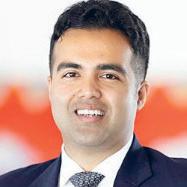
What was your pathway towards working as a Legal Officer at DFAT?
I studied a Bachelor of Laws and a Bachelor of International Relations at the ANU.
I always had a great interest in the political system of our country and wanted to use my skillsets for the betterment of society. This led me to apply to DFAT to work in the Public Service. I would encourage you to be persistent in chasing your ambitions and sometimes it can take multiple applications to get your dream job.
What are the most rewarding aspects of working in public service?
Working at DFAT can take you to unexpected places. The graduate program took me to Mongolia, where I was able to combine my passion for foreign affairs and the law in a culturally rich part of the world.
As a graduate in the policy stream, there is no typical day at DFAT.
You might find yourself helping out at the Emergency Call Unit to help facilitate the return of Australians in a crisis overseas or have the opportunity to attend a conference such as the Indian Ocean Conference in Perth, which brought together 17 ministers and 22 senior officials from 33 countries.
How has your law degree equipped you for working in your current role?
I now have the chance to use my law degree in my day-to-day work. As a legal officer in the Public Service, you are provided with regular training sessions and workshops and can renew your practicing certificate and obtain CPD points. You will engage in highly rewarding work which may often be on the news and offers a different job satisfaction to what you might get at a private firm.
I would highly recommend becoming a lawyer in the Public Service to anyone who wants to do cool work and have a work–life balance. The experience you gain will be invaluable to your future career.

Elise Trenbath

What is your current role and specialisation?
I am a Senior Lawyer in the Commercial team at the Australian Government Solicitor (AGS), specialising in property law.
What was your pathway towards working as a public servant?
I have had three “career chapters” since graduating from ANU—the first as a lawyer in ACT Government, then in private practice for a major corporate firm, and now I’ve moved into the Commonwealth public service in my role at AGS.
While I was studying I worked for the ACT government (which started as a short-term contract over a summer university break, and eventually became a permanent role) and towards the end of my degree I started working for the ACT Government Solicitor as a paralegal and then as a lawyer, where my focus was planning and property law. It was a great introduction to my legal career, because even though I was a junior I was able to be involved in a wide range of work. Eventually I decided I wanted to try my hand at private practice, and started working for a major corporate law firm in their property team. In that role, my focus was on government, commercial and retail leasing. I stayed in that role for almost 8 years and while I enjoyed it, I eventually realised that I didn’t see my long-term career path in private practice. I started in my current role at the AGS in early 2024, and haven’t looked back!
“The
skills are very similar to being a lawyer in private practice, but there is an added layer of considerations when it comes to advising Commonwealth clients in terms of things such as risk, legislative requirements, and public policy considerations�”

What attracted you to a career in public service?
There are two main things that attracted me to a career in the public service. The first is the work that I get to be involved in, which is very interesting and diverse. I love that I get to work on matters of national significance, and that my work ranges from transactional work like leasing and commercial contracts, through to preparing advices on a really broad range of legal questions. I’ve also found that you can seek out opportunities to be involved in work that is interesting to you, and that often people have quite broad practices which touch on lots of different areas of law.
The other thing that attracted me to the public service is the lifestyle and being able to work flexibly, where I’ve been able to choose to work in the way that suits me and my family. The culture at AGS is very supportive, and working flexibly isn’t a hindrance to your career, or a barrier to doing really interesting and valuable work.
What are the skills required to be a lawyer in the public service?
The skills are very similar to being a lawyer in private practice, but there is an added layer of considerations when it comes to advising Commonwealth clients in terms of things such as risk, legislative requirements, and public policy considerations. I think that there can be a perception that working as a lawyer in the public service isn’t as challenging or interesting as working in private practice, but I’ve found the opposite to be true.
What advice would you give your university-aged self?
I would tell myself that a career path doesn’t need to be linear, and it can be good to switch pathways and try different things. You also don’t have to be “locked in” to a particular role or area of specialisation—I’ve seen lots of lawyers switch things up along the course of their careers and that range of experience has been a great asset.
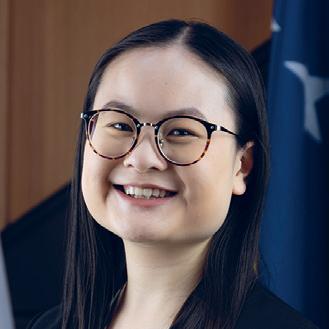
What is your current role and specialisation?
I am a graduate solicitor at the NSW Crown Solicitor’s Office, which is the largest provider of legal services to the NSW Government and its agencies. I am currently rotating in the Public Law & Commercial (Advisory) team. In this team, I primarily prepare advices on matters concerning statutory construction, administrative law, constitutional law and privacy law. I also prepare submissions and memoranda, in consultation with the Solicitor General for NSW, on proceedings involving constitutional issues in which the State is to consider whether to intervene in the proceedings pursuant to s 78B of the Judiciary Act 1903 (Cth).
What was your pathway towards working as a public servant?
While I had completed a clerkship and received a graduate offer, after spending some time as a tipstaff/associate at the Courts and being exposed to a variety of matters, I felt increasingly conflicted about where I wanted to start my career as a practising lawyer. I hadn’t really contemplated being in the public service until I left university, and in fact, had only heard about the Crown Solicitor’s Office (the CSO) while at the Courts! After much deliberation, and some conversations with people who were working in both private practice and at the CSO, I thought the variety of litigation work and inherently public-facing nature of the work at the CSO, as well as a generally more manageable work-life balance, would be a better fit for me. So, I decided to apply for their graduate program and, now that I’m here, am very content in my decision. The work has been interesting, challenging yet rewarding, and I have enjoyed having responsibility for my own matters.
What has been one thing you have learnt since joining the public service?
Administrative law and constitutional law were courses that I found conceptually difficult at university, but I have much

“It’s okay to not have your next career move figured out—often opportunities and areas of law that interest you will happen without you anticipating it�”
better clarity in both areas now that I’m practising. At university, a lot of the public law courses didn’t make much sense to me until the final few weeks of the semester, but even then, I couldn’t really appreciate what it all meant and was learning for the purposes of an exam. Only now, with the context of practising and working with government clients, have many of these concepts made more sense.
What advice would you give your university-aged self?
It’s okay to not have your next career move figured out—often opportunities and areas of law that interest you will arise without you anticipating them.
Just because many people follow the pathway of joining big commercial law firms, does not mean you necessarily have to do that too. There truly is such a variety of work and career paths out there.
Finally, even though you covered statutory interpretation in the first semester of first year and haven’t really engaged with it since, it will come up a lot when you’re a lawyer!

A career in public interest law and social justice provides law graduates the opportunity to utilise their legal qualification to spur on real change in the community and within the legal system.
Public interest lawyers work to improve the access, representation, and experience of marginalised groups in the legal system. This pathway is undoubtedly one of the most rewarding for legal practitioners.
For upcoming graduates inspired to pursue a career in social justice, Community Law Centres (CLCs)


have a number of graduate programs and internship offerings that will be advertised at the links below.
Working with a reform body, such as the Australian Law Reform Commission, is an avenue worth considering for graduates with an interest in policymaking.


The Public Interest and Social Justice section covers: My Path from Volunteering to Practicing in Social Justice by Bridie Murphy
From a Vision of Social Justice to the Practice of Human Rights by Ed Santow
Making a Difference Through the Law by Karl Shami
Balancing Media, Academia, and Human Rights Law by Kieran Pender
Reflections on My Legal Journey as You Embark on Yours by Peter Seidel


What is your current role and specialisation?
I am a Senior Associate in the Social Justice Practice (SJP) at Maurice Blackburn Lawyers. The SJP is a stand-alone department within Maurice Blackburn, supported by the firm to undertake strategic litigation on a broad range of matters that improve access to justice.
We are a generalist practice, and don’t specialise in any particular area of law. Instead, we look at taking on matters that contribute to systemic change and benefit the broader community in the following social justice areas:
• Asylum seeker rights;
• Aboriginal and Torres Strait Islander justice;
• Challenges to corporate and government power;
• LGBTQIA+;
• Protecting communities and environments;
• Workers’ rights;
• Women’s rights.
What was your pathway toward public interest/social justice?
I was interested in working in public interest/social justice law from the beginning of my legal studies. This was only solidified by my experiences volunteering with Community Legal Centres (CLCs) over the course of my degree.
To pursue this in practice, I first sought out legal assistant and paralegal roles at Maurice Blackburn Lawyers (MBL) while I was still studying. I was lucky enough to obtain these roles, and later a clerkship and traineeship with the firm. I wanted to work with MBL because of their strong reputation as a plaintiff firm that provided access to justice for individuals and supported social justice causes, including through the SJP.
I spent approximately 5 years as a lawyer in the Employment and Industrial Law Section at MBL. Over this time I took up opportunities to contribute to pro bono cases at the firm and volunteered with

CLCs outside of work. I then took up an opportunity to complete a 6-month secondment to the SJP, which later became an ongoing role that I continue in today.
What are the most rewarding and challenging aspects of working in public interest/social justice?
The most rewarding aspect of working in public interest/social justice work is being able to help often very marginalised and vulnerable people navigate really challenging and distressing circumstances and achieve outcomes that can have a lifechanging impact on them but also often benefit the community at large. To be able to do this, without having to charge a cent, is a real privilege.
The most challenging aspect of this work is the sheer volume of unmet legal need in the community, and the reality that we cannot help everyone obtain access to justice. Unfortunately, there are many deserving
cases that we are not able to take on due to capacity and resourcing. This highlights the importance of lawyers contributing to public interest/social justice work however they can, whether that is by working in a dedicated practice, volunteering or working with a CLC, or taking on pro bono cases within their own practice.
What advice would you give your university-aged self?
I would advise my university-aged self that it can be a long career once you get into the legal profession, so don’t worry about rushing too much through your studies or if you aren’t exactly where you want to be straight away in your career.
Slowing things down so you can take up opportunities to volunteer or gain work experience can be very valuable. And once you start practising as a lawyer, there are countless opportunities to gain experience in different areas, learn, grow and move around.
Ed Santow

What is your current role and specialisation?
My background is as a human rights lawyer— having served as CEO of the Public Interest Advocacy Centre (PIAC) and as Human Rights Commissioner. I am a co-founder of the Human Technology Institute. We focus on the ways new technologies like AI can be designed and regulated in a manner that upholds human rights. I aim to develop law and policy that supports that focus.
What attracted you towards public interest/social justice law?
As a law student a million years ago, I had this sense early on, that I wanted to do something with a SJ component to it. I did not know what it was, but it was what motivated me to do law.
So, while at Law School, I did several internships and worked with amazing researchers—RA kind of thing—and that really helped me hone my interest.
Perhaps the most important moment for me was an internship I did with the PIAC—now the Justice and Equity Centre. It does law and policy work but is most famous for running strategic PI litigation.
There was a case we did. I was 19-20 at the time, but I still remember it well. It was one of the first cases under the Disability Discrimination Act 1992 (Cth).
Our client was a little girl—10 or 11 years old—named Scarlett Finney. Scarlett had this interesting problem. Her parents decided to send her to Hills Grammar School, a private school in Sydney. The school rejected her enrolment because she had a condition called spina bifida.
The school felt that she would be unable to keep up intellectually and navigate the school. But Scarlett is one of the smartest and most impressive kids I have ever come across – there is no doubt about her intellectual ability. Her physical movement was somewhat compromised, but she was creative about getting around, and all she needed was reasonable and minor adjustments.
That case showed me that lawyers could play a crucial role in upholding basic human rights and promoting a more equal and just society. It was not an abstract, airy case from decades ago in a dusty book. It was a real person who I could see in front of me—one with real ideas and a bigger life than the case. That was a critical moment.
What was your pathway towards public interest/social justice law?
As mentioned, I gained an invaluable vision from doing internships—but it was only a vision. I was conscious that I did not know much and was embarrassed about that. I was an ok student, but I did not do the practical things like mooting. I felt a big distance between my vision and my actual ability to do anything useful. I set out to gain more practical experience, starting from my time at university. I did a summer clerkship. I started to see what it meant to be a good lawyer.
Once, in a discussion with a mentor, I said that I wanted to become a human rights lawyer. She in-turn asked me what I thought that entailed. My response centred around protesting. She replied that I can do that anyway. Her advice was that to be a good human rights lawyer, I needed to be a good lawyer.
There are no shortcuts. Study hard. Not just in human rights and public law, but also at the other core areas of the law like corporations. If, as human rights lawyers do, you want to push boundaries, you need to be better than your opponent. You will be less well-resourced and will have to work hard.
Though I walked away from that meeting chastened and embarrassed, it fuelled a fire in me. That made me a better student. It made me think that I needed to be more serious and ensure that my skills are stronger than ever before. I found this path to be useful. Over the next 20 years, there were times I worked in human rights fields that I wanted to be in long-term and
“I have observed that we want to work with friends—those who are likeminded� I think it is more important that we win�”
times I did not. I still saw why I was doing it: it was useful to be around experienced, high-quality practitioners from whom I can learn and take the bits worth emulating.
What skills are required to do public interest/social justice law?
There are three key qualities that you need.
The first, as mentioned, is to be a good lawyer. It is a mistake to only talk about the honourable passion you have for social justice. But what makes you a good lawyer in that field are skills and expertise that help people.
The second quality is resilience. This work is hard. You are constantly pushing boundaries and operating in practices significantly less well resourced. You are going against the powerful trying to even the field. It is not a sprint, not a marathon. So, you must be resilient. To me, that means knowing why you do what you do, finding meaning in the small tasks—not just the big wins—and accepting that you will have some wins and losses. You must learn to learn from the losses and save the wins.
The third is to be strategic. In public interest, I have observed that we want to work with friends—those who are likeminded. I think it is more important that we win. One of the big changes I made as CEO of PIAC was to get advice from people on how to increase our win percentage and grasping the practical advice we got.
What are the most rewarding and challenging aspects of working in public interest/social justice law?
The most rewarding aspect might be the most obvious, but it is worth enunciating. It feels good to have alignment between my values—those of equality, human rights, and being decent to people—and my work. It is nourishing and sustaining in ways that I would not have felt had I taken a more conventional pathway. That is no criticism of anyone doing such, but I know enough about myself to say that whatever extra money I earned would have been spent trying to square the circles between my values and my vision.
The LSS expresses its gratitude to Ed Santow for participating in this interview conducted by Chith Weliamuna. Ed’s responses have been adapted for the purposes of this guide.
Karl Shami

What is your current role and specialisation?
I am an Associate at Maurice Blackburn Lawyers’ Social Justice Practice, working on strategic litigation and public interest cases.
My work is all about dispute resolution and I primarily work on a range of litigated matters, including cases relating to asylum seeker rights, Aboriginal and Torres Strait Islander Justice, environmental justice and challenges to government decisions.
Getting into public interest and social justice practice
I knew early on that I wanted to use the law to help people. During university, I volunteered at a few different community legal centres. I also took part in a study tour visiting and analysing how Courts were increasing access to justice. This opened my eyes to the power of public interest litigation and the value in using the law for creating systemic change.
While still at university I began working at Maurice Blackburn Lawyers as a paralegal, which was followed by a graduate role at the same firm. In that role I rotated through two teams, including the Social Justice Practice, where I eventually settled as a solicitor.
What is life as a public interest/social justice lawyer like?
A public interest lawyer still needs all the usual lawyer skills; attention to detail, strong communication, and good technical skills.
But there are some key skills that are particularly helpful to a public interest lawyer:
• Collaborating well with clients, colleagues, and sector partners;
• Thinking both strategically and creatively;
• Practising law with deep compassion; and
• Putting your clients’ experience first.
Understanding and having empathy for your client and the people who the work

impacts, need to be at the forefront of your mind as a public interest lawyer.
It’s really important to remember that you are working with real people with real issues. Your job is to prioritise the client’s needs.
For me, the most rewarding part isn’t necessarily winning cases. It’s seeing the impact on my clients. Sometimes just listening to someone might be the first time they’ve been heard and believed.
On the other hand, the challenges can be complicated. I am often working with vulnerable people, who sometimes have lived through trauma and have complex needs. This work also often involves test cases and working on difficult or novel questions of law. Every day can be very different, which is both rewarding and also a challenge.
Looking ahead, it may seem clichéd, but I think the emergence of artificial intelligence poses both challenges and benefits.
AI has the potential to increase access to justice by minimising the cost of legal advice and assistance. This might
be through assisting with completing template documents or converting difficult legal concepts into plain language. On the other hand, there is a real risk that corporations and governments might use AI in ways which replicate and magnify existing biases, which in turn could potentially create new social justice issues requiring legal intervention.
For those students interested in a future in public interest law, my advice is to focus on embracing as many experiences as possible at university, both legal and non-legal. The non-legal opportunities broaden your perspective and, of course, remind you that there’s a world outside of the law once you are practicing.
By getting involved in as many opportunities as you can there’s a good chance you’ll meet some great people. Some of whom will become mentors, colleagues, trusted advisors, and even friends!
Exposing yourself to different opportunities might also lead to you discovering that you enjoy (or hate) different parts of the profession.

What is your current role and specialisation?
I’m fortunate to wear a number of hats. I’m an associate legal director at the Human Rights Law Centre, working on whistleblower protections, secrecy and free speech. I’m also an honorary senior lecturer at the ANU College of Law, where I research on the implied freedom of political communication and teach constitutional law and conflict of laws. I also write, mainly for The Guardian and The Saturday Paper
What was your pathway?
Luck! I was fortunate to juggle my law degree with work as a journalist, and as a paralegal at a local Canberra firm, working in employment law. As graduation approached I didn’t want to give up any of these areas. I was told by several people that I needed to pick, to narrow, to focus—but I didn’t want to! I was lucky to get a job in London working in legal policy at the International Bar Association, and they were willing for me to continue writing on the side. I was there until Covid hit, when I returned to Australia and ended up at the Human Rights Law
“I feel balancing my different interests/skills has been a positive—I’m a better lawyer because of my media background, and I’m a better writer because of my legal skills� I have been fortunate to have accommodating employers—perhaps not every workplace would give you a month off to cover the FIFA World Cup, or the Olympics� But I feel if you work hard and demonstrate your value, most places are happy to accommodate�”

Centre. And for most of that time I’ve kept researching, tutoring and now lecturing at the ANU, as a visiting fellow and now as an honorary.
I feel balancing my different interests/ skills has been a positive—I’m a better lawyer because of my media background, and I’m a better writer because of my legal skills. I have been fortunate to have accommodating employers—perhaps not every workplace would give you a month off to cover the FIFA World Cup, or the Olympics. But I feel if you work hard and demonstrate your value, most places are happy to accommodate.
What advice would you give your university-aged self?
As someone who did not want to pursue what might be described a “traditional” legal career pathway—clerkship, graduate program, commercial law etc—I was sometimes stressed at the lack of clear opportunities for junior lawyers in other areas. That remains a challenge and I’m not saying there’s a right answer, but I
would tell my university-self to worry less about the future and be more open to saying yes to opportunities, taking risks and being comfortable that it would all work out. I did not have a clear idea of what I wanted to do after graduating and that stressed me out, particularly seeing friends with clear, linear pathways ahead of them. But it works out. With hindsight, perhaps I could have stressed less.
What are some of the challenges currently facing the profession?
The legal profession has a long way to go towards being the diverse and inclusive profession it needs to be. Especially at senior levels, the profession does not reflect society. That must change. While working at the International Bar Association, I worked to address bullying and sexual harassment in law—too many legal workplaces remain toxic and too many lawyers perpetrate inappropriate conduct against others. We all have a role to play in ensuring safe, supportive and inclusive workplaces.

What is your current role and specialisation?
I am the Arnold Bloch Leibler partner responsible for coordinating the firm’s public interest law commitments to civil society. In our public interest law work we represent Indigenous communities, cultural causes, particularly Jewish causes, environmental groups, and other not-for-profits.
Our work for and on behalf of Indigenous communities began in 1993 when Arnold Bloch Leibler was first engaged by the Yorta Yorta peoples in their monumental struggle for land justice. I joined the firm at that time to work on that case. From that relationship, ABL’s practice of promoting Aboriginal self-determination, empowerment and land justice organically evolved.
At the heart of our commitment to cultural and general societal causes is an abhorrence of racism. We regularly take on test case litigation that focuses on calling out racism, as well as other forms of discrimination, including sex and disability discrimination.
In our fee-paying practice, we have expertise in a range of areas, including commercial, tax, property law, competition law, admin law, governance, workplace, banking and finance, philanthropy, estates, charity law, and the like, and we tend to work in much the same areas in our public interest law client work. That way, the public interest law at ABL is truly a firm-wide practice, which means all ABL lawyers, from grads to senior partners, and all levels in between, are encouraged to—and do— contribute to the practice.
What was your pathway towards public interest/social justice?
The road less travelled. Prior to Arnold Bloch Leibler I worked for three years as an Associate to the then Acting Chief Justice of the Federal Court, Justice Charles Sweeney CBE. Before that, I worked in commercial litigation for a couple of years at MinterEllison. During my university days and early on in my professional life I had always felt a strong
urge to become involved in trying to make a difference to the lives of others through the medium of the law. And so, very early on after high school I sought out related opportunities as a volunteer, including as a “community advisor” at the quaintly titled Prahran Citizens’ Advice Bureau and as a property law tutor in the Koori Students’ Liaison Unit at Melbourne Uni.
What attracted you to public interest/social justice?
From a very early age also I was passionate about social justice. I was raised to think and act like that—to never take life’s privileges for granted and to show my gratitude by giving back to community and to people less lucky than me. In my mind I can still hear my parents telling me that “actions speak louder than words” and to always try “walking in the shoes of others”. It was as simple and as powerful and as life-defining as that.
What are the skills required to be a public interest/social justice lawyer?
Much the same skills as those required to be an outstanding commercial lawyer: possessing a natural curiosity; developing and harnessing professional selfconfidence; having a passion for the law as a mechanism for justice; staying humble; displaying genuine empathy; being an effective advocate and communicator, as well as a good listener; and never ever giving up for as long as it takes to effect change for the better in solidarity with the client and their cause.
What are the most rewarding and challenging aspects of working in public interest/social justice?
I feel so privileged to have been given the opportunity at ABL many years ago to coordinate and give formal shape to the firm’s long-standing public interest law commitments. I think about that honour every day.
On occasion in my role at ABL I have been able to bear witness to the cataclysmic improvements in civil society that occur when the public interest law/social justice case is won after a determined struggle for justice. Personal experience has also taught me that it can be equally, if not more, rewarding when the case is lost in the court of law, but ultimately won
“Be
bold! The law evolves and changes for the better through collaborative effort, teamwork and dedication, when the client and the lawyer are 100% in sync, working towards a common goal for a worthy cause�”
in the court of public opinion. In such instances, the learnings go beyond the professional life of a lawyer. They extend to how to come to terms with and find peace in a loss and to face it all with grace and dignity, knowing that in the end, with determination and dedication, justice always prevails.
What advice would you give your university-aged self?
I don’t really have many regrets in my life, so I would simply like to say to my university-aged self “you’re on the right track, young fella—enjoy every moment of the journey on it and, as you travel, continue to put your faith in the power of the motto that you so cherish on the back cover of your favourite album (The The’s Soul Mining)—‘With every kick in the face and every hurdle you pass the rewards get greater!’”
How do you see public interest/social justice law evolving in the future?
In ways and by means that each of you— the law students reading my short spiel here—will know far better than me. Be bold! The law evolves and changes for the better through collaborative effort, teamwork and dedication, when the client and the lawyer are 100% in sync, working towards a common goal for a worthy cause. I am so excited about that future and the seminal contribution that each of you will make to the law as it evolves for the good of civil society.
What are some of the biggest challenges likely to be faced by public interest/social justice lawyers?
Only those that, because of the limits to our imagination, we fear we cannot overcome…

Academia is concerned with the pursuit of legal study, critical discourse, and research.
Academia is a challenging, yet highly fulfilling career path. Academics play an integral role in contributing to law reform and exploring the strengths and weaknesses of the existing legal system. Academics are at the forefront of legal innovation.
The pathway to academia is extremely diverse, and it is often the academics with versatile and extensive
background experiences that have the best foundation for a career in academia. Academics will often practice the law before completing a PhD.
The path is not rigid, however. Many of the legal academics at the ANU have had careers in the public service, at research think tanks, or are continuing to practice the law as a solicitor or barrister while teaching.
The Legal Academia section covers:
International Law in the Classroom and on Campus by Donald Rothwell
From Academia to Practice, and Back Again by Jason Chin
Academia and Social Justice by Jessica Hambly
Interdisciplinary Academia: Medical Research to Health Law by Rebekah McWhirter
Willing to Work Hard in Your 90s?
Try Being a Legal Academic! by Ruoying Chen
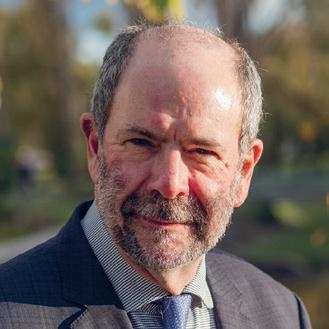
What is your current role and specialisation?
Professor of International Law at the ANU College of Law with a particular interest in the law of the sea, international polar law, and international law as it operates in Australia.
What was your pathway towards a career in international law?
I completed a BA/LLB at the University of Queensland, and then progressed to an LLM at the University of Alberta in Canada. The LLM was a coursework/ thesis program where I wrote a 250 page thesis on the law of maritime boundary delimitation. I followed that up with a MA (Political Science) at the University of Calgary in Canada where I completed another coursework/thesis program and wrote a thesis on Antarctic governance. On returning to Australia, I commenced as a tutor and then a lecturer at Sydney Law School, where I undertook a PhD on international law and the polar regions. I have been a full-time academic since 1988.
What attracted you to international law?
In high school I was always interested in developing a career that would allow me to pursue my interest in international relations and politics, and which could give me an opportunity to also travel. At Law School I discovered that public international law—as practised by government and researched and taught in universities—very much allows for that.
What are the skills required to be an academic in international law?
Fundamentally you need to be engaged, invested, and enthusiastic about your research. These are really core skills for any ANU academic. It also helps if you have an awareness as to why international law matters to your students, your colleagues, and society. Being able to passionately communicate your knowledge of international law also helps.

What are the most rewarding and challenging aspects of working in international law?
I particularly enjoy working on matters of national and global significance. These are matters at the forefront of public debate— such as the Gaza conflict, or the consequences of the Trump Administration for international law— which gives the areas I research and teach in an immediacy all the way from the ordinary citizen to the highest levels of government.
The challenges are that new issues constantly emerge which means you need to be capable of considering new and novel issues that you may not have adequately researched or thought about previously, such as President Trump’s desire to acquire Greenland! What advice would you give your university-aged self? Be patient and enjoy yourself.
How do you see international law evolving in the future?
International law will increasingly become mainstream; that trend is already evident and can especially be seen in Europe. Australia will continue to embrace international law because of the influence it provides to middle powers. International law will also continue to expand and develop in newer areas such as international climate law, and cyber law.
What are some of the challenges currently facing international lawyers?
The science/law interface that is reflected in areas such as autonomous ships at sea, drones and armed conflict, climate change, cyber law, and international health law as reflected during the pandemic are ongoing challenges. They will require international lawyers to expand their skills beyond their distinctive discipline area.
Jason Chin

What is your current role and specialisation?
I am a Senior Lecturer at the ANU College of Law, Governance, and Policy. I specialise in the way evidence law intersects with psychology, forensic science, and metaresearch. My work examines how evidence is gathered, interpreted, and presented in legal settings, with an emphasis on improving transparency and reproducibility in forensic science and empirical legal research. More generally, I am interested in improving the way science informs law and policy.
What was your pathway towards legal academia?
My journey into my current job is somewhat convoluted. I completed my PhD in Psychology at the University of British Columbia, where I developed a strong foundation in scientific research methods and writing. I was not able to replicate my supervisor’s findings and so I had trouble publishing and succeeding in psychology.
So, in need of a job, I pursued a Juris Doctor at the University of Toronto. I practiced as a litigation lawyer for a few years, but I found myself interested in why science can be faulty (as I saw in my PhD) and questions about how evidence is used in courtrooms, including how we can make the legal system more accurate and fair. This curiosity led me to transition into teaching and research again.
What are the skills required to be an academic?
I don’t like the term “academic” and don’t describe myself that way. I conduct a lot of research, do university service, and teach several classes. This requires curiosity, perseverance, and the ability to communicate complex ideas clearly. Research often involves navigating ambiguity and setbacks, so learning to proceed despite failure is important. Teaching, on the other hand, demands empathy and adaptability: you need to connect with students who come from diverse backgrounds and have different

“Law is increasingly becoming more interdisciplinary, drawing from fields like data science, psychology, and artificial intelligence to address legal problems�”
learning styles. Finally, collaboration is crucial. Much of my work involves interdisciplinary partnerships with scientists, legal practitioners, and policy-makers.
What are the most rewarding and challenging aspects of working in legal academia?
One of the most rewarding aspects is the ability to influence both the next generation of lawyers and the broader legal system. Regarding the former, managing to inspire a student to surprise themself with a new interest is very gratifying. Regarding the latter, I was
very pleased to see my work cited by the High Court. It felt as if someone was actually reading my work!
However, there are major challenges. Balancing research, teaching, and administrative responsibilities can be demanding. The pressure to publish, secure grants, and meet institutional metrics sometimes conflicts with the slower, more thoughtful pace that good research requires.
How do you see legal academia evolving in the future?
Law is increasingly becoming more interdisciplinary, drawing from fields like data science, psychology, and artificial intelligence to address legal problems. Another shift is towards more engaged scholarship, where we are expected to contribute to public discourse and policy-making, and not just write for other university researchers. This creates fun opportunities to make a real-world impact, but it also means we need to rethink traditional metrics of success.

What is your current role and specialisation?
I am a Senior Lecturer and Director of Law Reform and Social Justice. My research focuses on socio-legal approaches to migration, more specifically asylum procedures and the practice of refugee law. I convene “Lawyers, Justice and Ethics” and “Law and Social Movements”, which gives me an opportunity to bring in aspects of my research, for example, around social justice lawyering and critical approaches to law reform. I’ve also developed a specialisation in trauma-informed legal practice, and alongside developing training for legal professionals here in Australia, last year I obtained a Graduate Certificate in Global Mental Health Trauma and Recovery from Harvard Medical School.
What was your pathway towards academia?
In some ways I am an accidental academic. I did not necessarily think I would end up here, but throughout my studies I have always been interested in thinking deeply about the life of law and legalities rather than being driven towards practice.
I did my LLB at King’s College London which included time studying French law at the Sorbonne in Paris. I did pretty well academically and I also engaged in loads of student politics while at uni, as well as travelling as much as possible and widening my gaze. This was a really formative time for me. I got into the BCL at Oxford where I had to work so hard to keep up with the Australian super-brains in my classes (some of whom had come from the ANU)!
From there I was offered a PhD scholarship which included another Masters in Sociolegal Studies. It was at this point I started volunteering with local refugee rights organisations and focused my PhD on refugee lawyering. During my PhD I was tutoring LLB public law subjects.
After my PhD things got a bit more fuzzy and I had a few years of exploring different things. I qualified as a yoga teacher. I worked on a few research

projects and this allowed me to publish papers and start to establish a bit of a research profile. At the same time, I was doing voluntary legal aid work on the Greek islands of Lesvos and Samos.
So at this point my life could have gone in a lot of different directions!
But to cut a very long story short, during a 500 km bike ride along the mountainous border of Southern France and Italy, I interviewed for a job at the ANU and was offered it.
So the pathway to academia has been pretty twisty. I have had some major health challenges along the way, including meningitis at the end of my PhD and being diagnosed with cancer shortly after moving to Australia, during the COVID-19 pandemic. I also lost someone very close to me at that time. These are hardships that make me think differently about my “career”.
Ultimately I want to be in a job that is interesting and fulfilling and aligns with my social justice values. At the moment, academia ticks those boxes but, in the future, who knows?!
What are the skills required to be an academic?
You cannot be afraid of hard work, and there are no shortcuts. Read widely, think deeply, and write furiously!
What are some of the challenges currently facing legal academics?
In terms of research, the politicisation of research funding in Australia is really problematic. In terms of teaching, I think there is a real challenge when it comes to rigorous, fair assessment and use of AI. And of course, like many other professions, workload pressures are massive in academia.
Rebekah McWhirter

What is your current role and specialisation?
I’m a senior lecturer in the School of Law, and I specialise in health law. My job is divided into three main areas: teaching, research and service. These are supposed to comprise roughly 40%, 40%, and 20% of my time, respectively, but those proportions fluctuate depending on what needs to get done. This year, I’ll teach torts and health law. I will work on grants relating to the regulation of genomics and research, by collecting and analysing data, writing journal articles and engaging with stakeholders. I’ll also fill a number of internal and external service roles, including Education Director for the law school, sitting on the university Human Research Ethics Committee, sitting on grant panels, and being a member of various boards and committees for professional societies. Committees and admin are much bigger parts of this job than I originally appreciated.
What was your pathway towards academia?
I love research and I love teaching, so academia was an easy choice for me. It was much harder to decide which discipline was the best fit! I find nearly everything interesting. I found it hard to choose whether to specialise in science or the humanities/social sciences. I did my PhD in history (of medical law), and while I enjoyed the research, I found history quite isolating. I then started working in medical research, on genetic epidemiology projects, and retrained by completing an MPH. I learnt a lot about applying for grants, project management, publication norms, and other core research skills during that time. I also found that I was increasingly spending my time working on ethical and legal issues affecting our research, and gradually, they became my research. I started working with legal academics who specialised in health law, and realised that I’d found a discipline that combined my interests in a satisfying way. They encouraged me to retrain (again!), this time in law. Although it wasn’t a particularly direct route, I think

my solid grounding in multiple disciplines makes my work stronger, and makes it easier for me to collaborate effectively with people from other fields.
What are the most rewarding and challenging aspects of working in academia?
There are lots of rewarding aspects! I get to work with great people—my colleagues in the law school and my research collaborators are all wonderful and make the job super enjoyable. I get to work on the things that interest me and I have the freedom to change what I work on as my interests develop.
And that makes it especially rewarding when you see your work translated into policy and practice in ways that improve things a little bit, or when you see your students succeed, because you’ve turned that curiosity into something good in the world.
The challenging bits include marking (because it’s repetitive and always takes
me far longer than it should), the ever more competitive funding environment, and working out how I, as one individual in a much bigger system, should respond to the changing nature of higher education.
What advice would you give your university-aged self?
Actually, I don’t think I’d change anything about the way I’ve gotten here, even though there were obviously much quicker routes. But what worked for me probably wouldn’t work for someone starting out now, because things have changed. I think my advice would be: don’t rush into a PhD, get some experience in the field first, maybe do a masters (or two!), and be sure that it’s the field for you before you start. The clock starts when you finish your PhD (for determining what fellowships you’re eligible for, for evaluating your career stage, etc.), so set yourself up well before then by gaining teaching experience, developing research collaborations, and publishing your work.

What was your pathway towards legal academia?
I did not plan to become an academic after graduating from PKU Law in Beijing (LL.B.) and Oxford (M.Jur.). Instead, I worked for the international law firm Freshfields (HQ in London) in Beijing and Hong Kong for over 5 years.
I started teaching at the University of Chicago Law School while I was a fellow and a J.S.D. candidate there.
Upon receiving my J.S.D. degree, I joined PKU Law School in Beijing and taught there before I moved to Australia.
Probably like Australia, full-time legal practice is not required or preferred in top law schools in East Asia. But it has become a standard step, or at least a strong plus, for top law schools in the US, in addition to clerkships. I found those experiences quite helpful for my teaching and for my research, e.g. help students make sense of their studies in relation to reality, spotting and framing research topics, etc...
What attracted you to legal academia?
You get to choose the people that you want to spend a lot of time with, talking about things that you find interesting, no matter how remote those things are to your day-to-day life.
Many people hate to mingle work with life and often talk about life and work balance.
But I truly enjoy the fact that the intellectual and many emotional aspects of my life are actually closely related to my work. My research and teaching are enriching my life and vice versa, on a daily basis. Without the work that I do, I would not be able to meet so many wonderful people and live the life that I am living right now.
I am always fascinated about the roles played by institutions in shaping the incentives and behaviours of individuals. The career as a transactional lawyer let me live as part of those institutions, market and non-market alike, with strong contrast between matured markets and

emerging markets. However, being in legal academia allows me the chance to sit back and reflect such dynamics with a wider range of perspectives: history, political economy, humanity, philosophy, etc…
What are the skills required to be an academic?
I am not a good role model, but I have been lucky in working with some of the best legal scholars of our time: here in Australia as well as in the United States and East Asia.
By observing how they function and excel in the profession, I have found the following core skills are essential:
• to learn new things fast and effectively
• to ask the right questions regarding potential correlation and causation
• to communicate efficiently, both verbally and in writing
• to be empathetic to people and issues that are seemingly unrelated across time and space
Good news is that these skills are not static but dynamic: they can be improved daily: reading, writing and asking questions.
But they are ultimately driven by intellectual curiosity and incredible diligence, which fortunately are not exclusive assets owned by people of any given social economic background.
The very top legal scholars that I have seen also turn out to be the most diligent and curious colleagues: it is not
a profession distinguished mostly by inborn talent, which is a great news!
What are the most rewarding and challenging aspects of working in legal academia?
Reward: it’s a global community transcending many boundaries: states, races, and time, which give me a very strong sense of humanity and connection. Such a sense does not depreciate over time and may actually grow as you age!
Legal institutions are diverse and are driven by pragmatic reasons varying across time and places, but the basic values and goals of legal institutions are shared among the academia.
Challenge: legal academia shares its field and issues with many others, academia and non-academia. Most of the time, there are reality checks on these issues.
We hence always face the question of whether we are duplicating and whether we are adding value.
Most of the issues that legal scholars teach and research are also the subjects for academia from other disciplines (esp. economists), legal professionals, market players, regulators, politicians, journalists, etc… This is quite different from some other academic disciplines, who enjoy certain exclusive authority, e.g. philosophy, anthropology, history, etc.
Even for pure legal issues, we do not enjoy exclusive authority but share the authority with judges, regulators, practitioners, prosecutors and legislators.


Create your story at Ashurst

With 32 offices across the world and a rich history spanning 200 years, we’ve established ourselves as a leading adviser in all areas of the law.
We offer the reach and insight of a global network combined with deep local market knowledge, to help our clients navigate a complex and constantly changing global landscape.
Our people are our greatest asset. Explore our history, our people, and be inspired to create your story at Ashurst.
Begin your story now at ashurst.com/careers
Consider your personal brand, how you want to be perceived and recognised in terms of your strengths. The best way to create a good impression is by being authentic.
A great attitude, enthusiasm for any task and the ability to quickly build rapport is an asset.
Remember, a 3.5 to 4-week clerkship is an extended interview for a graduate position in locations with multiclerkship opportunities.
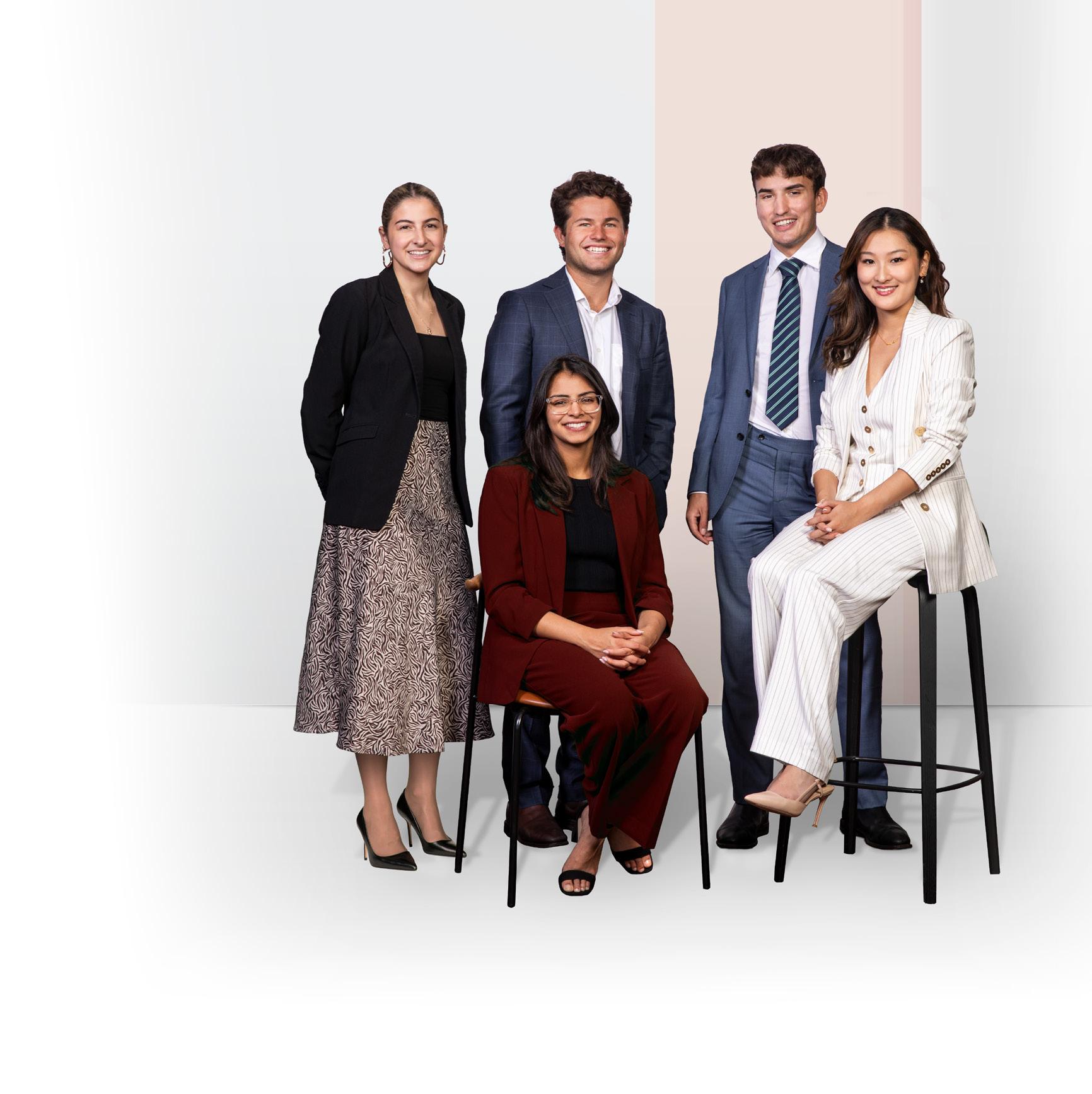
Have a clear picture of what you want from your clerkship, what you want to learn about the firm, and the type of work you want to get involved in.
Take the initiative to get to know your team as well as other practices across the firm, meet as many people as possible and try to get involved in different types of work, projects and activities.
Take on various work for different people across the team, but don’t forget the importance of managing your priorities.
Clerkships involve several training sessions and activities. You will also be completing various projects for people across your team; make sure you keep your team and supervisor updated on your workload and training schedules to ensure your success.
A clerkship is an excellent opportunity for you to learn and develop your legal knowledge and skills, remember to request feedback after completing tasks, as acting on this feedback is a great way to demonstrate your ability to learn quickly – an essential skill for junior lawyers.
Take the time to follow up with the team members that have assigned you tasks and get their thoughts on the work you have completed - just be conscious of their workload and the timing.
Speak to as many people as possible. This is your opportunity to find out if Ashurst is the place you want to begin and grow your career.
Take every opportunity to meet people from across the firm to learn about the practice groups, and if they are people you would like to work with in the future.
Lastly, take the time to get to know your fellow clerks - you may be colleagues one day! Begin










Fast-track to admission
Courses run for 15 – 30 weeks, with courses starting every month. Get admitted sooner.
Your studies, your schedule
Work to your own timetable not rigid class calendars. Follow set course dates and key milestones, but the rest is up to you.
Support from those who’ve been there
Learn from experienced lawyers. Get 1 - 1 career coaching and expert mentorship.
Train like a lawyer, not like a student
Work on tasks that mirror real-world practice without a single essay or exam.
Tech skills built-in
Use the same tools and systems as practising lawyers. Because legal tech isn’t optional.
Extensive connections with law firms
Trusted by 30+ law firms and government agencies. We know what employers want and we deliver.


Get the guide


For more than 130 years, Jones Day has nurtured and sustained a culture of client service and professionalism rooted in core priorities shared across the Firm, including pro bono initiatives, encouraging diversity in the profession, supporting community outreach efforts, and promoting the rule of law around the world.
Jones Day seeks professionals focused on delivering the best service possible to our clients, alongside colleagues whom they value and respect. Our people take great pride in their work, they lack pretension, and they show respect and consideration to everyone in the Firm.
Accelerated Career Development. An emphasis on collaboration, a commitment to continuous training and development, and the opportunity to work with clients in every major business center in the world, make Jones Day a compelling opportunity for Australia’s most talented legal professionals to learn, achieve, and grow their careers.
A presence in Australia since establishing the Sydney Office in 1998, and with offices added in Perth, Brisbane, and Melbourne, Jones Day is a premier global law firm with a sustained and demonstrated commitment to clients based in, or conducting business in, Australia, the Asia Pacific region, and beyond.
Jones Day lawyers at all stages of their careers serve on teams representing 40 offices and 24 practices on client matters in litigation, M&A and private equity, intellectual property, compliance, tax, cybersecurity, health care, and virtually every other type of legal matter potentially affecting the modern multinational corporation.
Summer clerkship programs at Jones Day offices in Australia offer positions to selected students enrolled in their penultimate year of university study. Real work opportunities for actual clients provide an opportunity to experience the practice of law at a large multinational firm. The assignments allow the firm to evaluate a clerk’s potential to deliver first-rate legal services, and to ultimately flourish in Jones Day’s culture. Clerkship programs run in Sydney for eight weeks and Melbourne for four weeks, and typically commence at the end of the year.
SYDNEY
Applications open Wednesday, 11 June 2025 at 9.00 am
Applications close Sunday, 13 July 2025 at 11.59 pm
MELBOURNE
Applications open Monday, 7 July 2025 at 9.00 am
Applications close Sunday, 10 August 2025 at 11.59 pm
Apply at www.jonesday.com/en/careers/opportunities
Recognising that many law students leave school not certain about a career path, Jones Day introduced the New Lawyers Group, or NLG, allowing new lawyers exposure to numerous areas, lawyering styles, and client situations prior to committing to a specific practice. The format introduces the new associates to established and traditional legal work like transactions, litigation, regulatory compliance, and intellectual property; and on emerging areas of the law like cybersecurity, life sciences, ESG, and financial technology.
In addition to providing ongoing professional development opportunities, the NLG brings together new associates from across the Firm at the “New Lawyers Academy” in Washington, D.C., where they participate in training sessions, interact with peers, meet Firm leaders and potential mentors, explore affinity group options, and learn about Jones Day’s history, culture, and operations.
GRADUATE RECRUITMENT
The Sydney, Brisbane, and Melbourne offices participate in the NSW Graduate Scheme, the Queensland Graduate Program, and the LIV Traineeship Program.
YOUR CAREER JOURNEY AT JONES DAY
2 SUMMER CLERK
1 LAW STUDENT
3 CASUAL PARALEGAL
4 GRADUATE DEVELOPMENT PROGRAM
5 LAWYER
6 BEYOND THE PROGRAM
a w S t u d e n t ’ s G u i d e t o N e t w o r k i n g & B u i l d i n g
s
A professional network is a group of people you connect with in the profession to share information, advice and opportunities. This includes colleagues, mentors, peers and other professionals These networks can support career growth and help navigate the legal industry
Networking is creating and nurturing relationships with people It involves meeting new people, engaging in meaningful conversations and maintaining connections with individuals.
What’s Not Networking?
Networking isn’t about using favours, bribes or guilt-tricking to land a job It’s not just for extroverts and is not meant to be a one-off transactional conversation
It shouldn’t be a source of stress or anxiety it's about building genuine, supportive connections
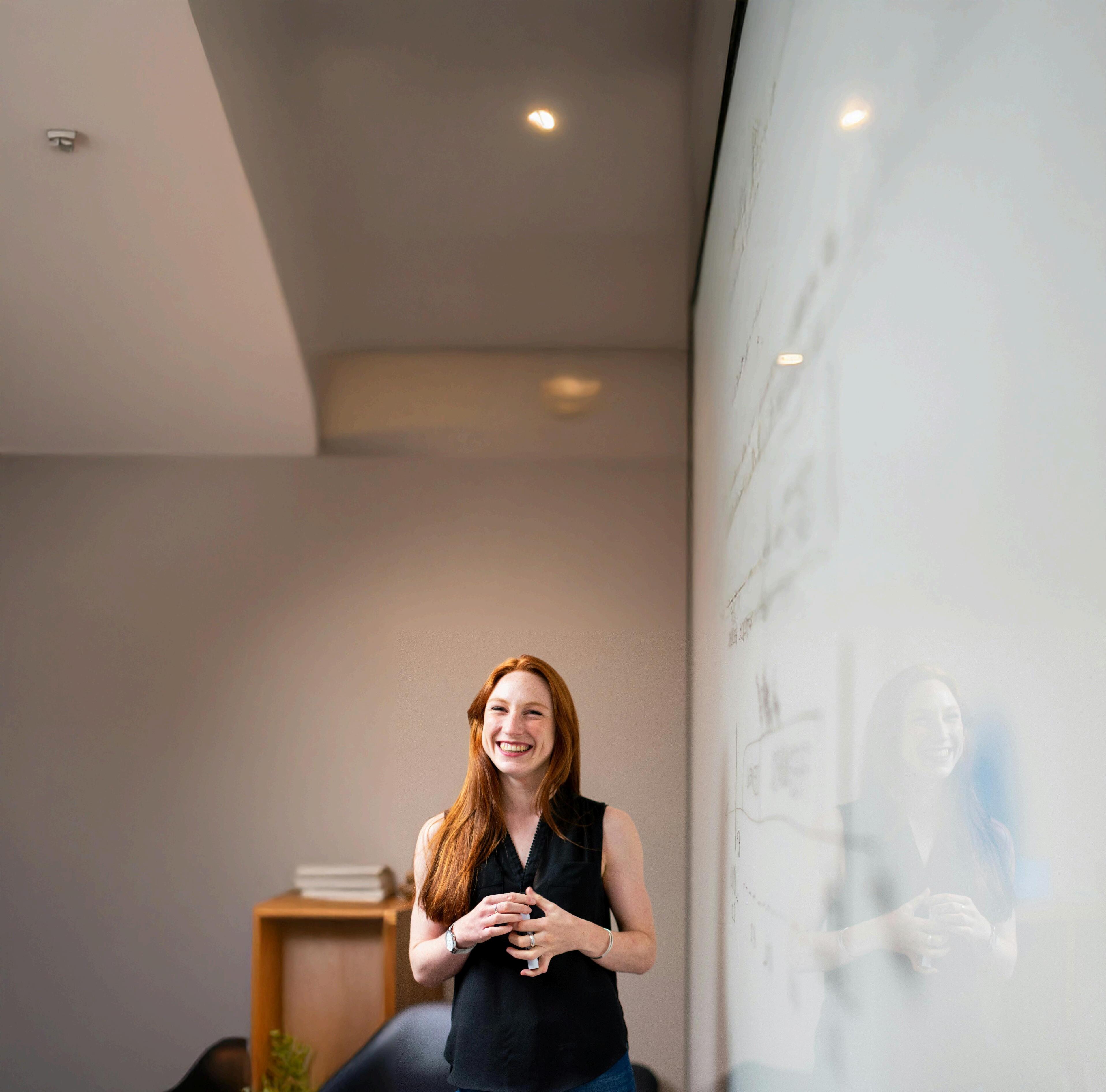




T o p T i p s f o r B u i l d i n g C o n n e c t i o n s
1
3 Staying in touch Introduce yourself
Share some basic information about yourself, including where you’re at in your studies or career and what you’re interested in.
Show genuine curiosity about the other person’s career or experience.
2 Take the opportunity to learn about other people
Ask about their expertise or area of law and how they landed their role.
Ask what advice they’d give someone starting out in this type of job/career?
Always follow up with a thank you
Leave a positive impressionClose the loop on any referrals or advice.

Stay connected year-round to gain insights, meet industry professionals and take the next step toward your legal career

At Allens, we’re focused on equipping our people with the skills and experience they need to be the lawyers of the future. We’re ready to define tomorrow. Are you?
A clerkship at Allens is the first step in a rewarding legal career, and will give you invaluable insights into our work and culture. With support from a buddy and development supervisor, you’ll work on real matters for real clients and be involved in a variety of projects. The programs:
run from three to 10 weeks;
are available at our Brisbane, Melbourne, Perth and Sydney offices;
feature ongoing support, including a buddy system; and
include exposure to one or two practice groups.
In each rotation, you’ll gain a depth of experience that comes from seeing matters through to the end, and get exposure to stimulating legal challenges. At Allens, we don’t work in silos, meaning you won’t be limited to working with only one partner or by your practice areas. You’ll work alongside a range of partners and lawyers, giving you exposure to a wide variety of tasks. Working with different teams and leading organisations, you’ll grow a solid skills base and develop the agility needed to thrive in our ever‑changing world. The programs include:
two 12‑month rotations in different practice areas;
secondment opportunities in London or Asia, via our alliance with Linklaters, or with clients;
ongoing supervision, coaching and mentoring;
completing a Graduate Diploma in Legal Practice (via University of New South Wales); and
a 12‑month weekly legal seminar series (Cornerstone Program).
Until now, I hadn’t really considered what my career might look like after my clerkship...
Since joining Allens however, I found myself completely inspired, especially by the female powerhouses.
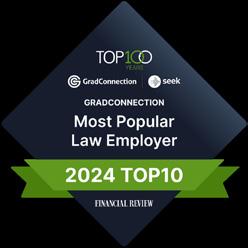


Our two-year Global Graduate Program turns gifted beginners into elite professionals. You will be afforded the breadth of experience needed to emerge as a confident business adviser.
We are one of the largest international law firms in the world, with over 30 offices across the globe. We believe every career at Clifford Chance should be rewarding and stimulating – full of opportunities to learn, thrive, and grow. That’s why we’re so proud of our inclusive, friendly, and team-based approach to work.
We work with our clients on market-shaping transactions and headline-hitting disputes. Most of our matters span international borders and involve numerous cross-practice groups – for example, our award winning investor-state arbitration team work on international mandates with overseas clients, colleagues and counsel on a daily basis.
Our one firm global strategy is focused on targeted growth led by the needs of our core clients, those who we can best support with the breadth and depth of Clifford Chance expertise, across the sectors and geographies, which matter most to them.
Whichever area of the business you join, you’ll become an integral part an innovative, diverse and ambitious team of people. Clifford Chance is a place where the brightest minds and the best of colleagues meet.
Our clerkship program will provide you with a real insight into life as a lawyer at an elite global law firm. You will have two rotations in different practice areas over the course of the Clerkship Program. You will work alongside partners and fee earners on real-time matters and be given the opportunity to attend world class training conducted across the APAC region. While not guaranteed, some of our clerks have recently attended induction training in Singapore.
Who should apply?
Penultimate year students who are available to participate in the March 2027 Graduate Program.
How many clerks do we take?
Perth: 5 – 8
Sydney: 8 – 12
Clerkship dates
Perth: November – December 2025
Sydney: November 2025 – January 2026
When to apply?
Perth: 23 June – 27 July 2025
Sydney: 11 June – 13 July 2025
Scan the QR code to submit your application.
For enquiries, please email: Grads.Australia@CliffordChance.com
Our Global Graduate Program is one-of-a-kind in Australia:
• Four rotations, each lasting six months
• Globally significant and headline-hitting work
• World-class training
• International secondment to an overseas office for six months
• No red tape, with access to colleagues and clients around the globe
• Market leading salary and benefits package
In addition to international secondment, you will have the opportunity to work across our award-winning teams in Perth and Sydney, including:
Litigation & Dispute Resolution Corporate Antitrust & Competition Global Financial Markets
Graduate offers are primarily made to students who successfully complete the Clerkship Program. We occasionally open direct applications to students who have not completed our Clerkship Program.
How many graduates do we take?
Perth: 5 – 6
Sydney: 7 – 10

Corrs Chambers Westgarth is Australia’s leading independent law firm.
for delivering legal excellence, exceptional client
We let our work speak for itself. We’re proud to work with some of the biggest organisations in the world on their most important matters.
Our clients include more than half of the top 50 ASX-listed companies, some of the largest privately owned companies in Australia and a number of global Fortune 500 companies. We work with well-known organisations like AGL, Australia Post, BP, CBA, Coles, eBay, Google, Johnson & Johnson, Medibank, NAB, PayPal, Stockland, TPG Telecom, BHP, TransGrid, Wesfarmers and Westpac. We also work with governments, as well as on high profile and market-leading transactions.
The majority of our graduates join us after experiencing a seasonal clerkship program.
Our clerkships give you the opportunity to connect with partners and lawyers across the firm, learn what a ‘day-in-the-life’ at Corrs is like and experience the type of work we do and the clients we partner with.
During your time as a clerk, you will be allocated a supervising partner, mentor and buddy, who will support you through your clerkship experience as you work alongside some of Australia’s leading lawyers on high-profile work for major Australian and international clients.
You’ll be exposed to a broad range of interesting matters and have the chance to complete tasks such as conducting research, reviewing and presenting documents, attending client meetings, court hearings, mediations and settlements, as well as shadowing partners and lawyers in client meetings and business development activities.
We’re known
service and outstanding results.
The Lawyer Development Program is designed to support you in the formative stage of your career. It aims to build the capabilities and relationships that will drive career progression and underpin future successes, as rapidly as possible. Unique features of the program include:
Mentor partner – You will be allocated a mentor partner (in most cases your supervising partner in your first rotation) who remains in this role throughout the program and potentially beyond. This will build a personal and enduring relationship that transcends everyday transactional work. You will also be supported in each rotation by a supervising partner and SA/SC who will source meaningful and challenging work.
12 x 6 x 6 rotation structure – The first practice group rotation is 12 months to ensure you have time to learn on the job and build strong capabilities and relationships in your first year. In the second year, when you have an increased level of experience and confidence, you will complete two six-month rotations in order to gain exposure and build relationships across different groups. Formal learning – The program incorporates comprehensive formal learning opportunities including our national Graduate Academy, local Graduate Orientation, practical legal training with the College of Law, practice group induction sessions and the national Legal Excellence program.
We strongly believe that diversity in all its forms should be embraced and celebrated. This benefits our people, our clients, our firm and the industry at large.
Our commitment to diversity and inclusion includes gender equality, cultural diversity, LGBTQ inclusion, First Nations inclusion, carers support, disability inclusion and accessibility, and flexible working.
In 2024, Corrs was recognised as a Gold Employer by Pride in Diversity, having achieved a gold citation in the Australian Workplace Equality Index (AWEI).

EY Port Jackson Partners (EY PJP) is sharply and exclusively focussed on providing exceptional strategy consulting for CEOs, boards and executives. EY PJP works with some of Australia’s leading organisations, domestically and overseas.
Port Jackson Partners was founded in 1991 by two former Directors of McKinsey & Company, Terrey Arcus and Fred Hilmer. Over nearly three decades, the practice evolved into a wellregarded strategy consulting firm in Australia. Recognising PJP's exceptional reputation and expertise, EY welcomed them in June 2020. Since then, the firm has scaled up, expanded into new sectors, and integrated into a global network while preserving its unique culture and boutique-like feel.
Graduate recruiting typically commences in February, for roles commencing in February of the following year. We look for curious and enthusiastic graduates with a passion for problem solving. A background in business is not required.
Applications open February 2026


EY PJP hires high achievers from diverse academic backgrounds. The firm encourages any student with an interest in problem solving to apply. EY PJP’s strategy consultants are from all educational backgrounds including science, law, engineering, arts, medicine, economics and commerce.
EY PJP is seeking exceptional applicants from any discipline for the Women’s Scholarship and Spark program. The scholarship winner will receive funding, a position in our internship program, and mentorship from one of our senior women leaders.
Applications open June 2025
Don’t just make up the numbers. Don’t force yourself to fit a mould. Be valued for being you. Join a firm that values different voices, fresh ideas and independent thinkers.

To learn more about our Early Careers Programs, application dates and more, please scan the QR code.

Enjoy a one year structured program with extensive on-the-job training and suppor t in completing Practical Legal Training.
Elevate Program provides regular learning oppor tunities designed to develop graduates by providing skills and exper tise to excel.
A comprehensive national induction program which lays the foundation for the year ahead.
Multiple rotations gives you the oppor tunity to gain experience in several of the firm’s practice areas.
A strong suppor t network including a buddy, mentor and supervising par tner to provide guidance throughout the year
Oppor tunities to par ticipate in pro bono and Smar ter Law initiatives.
Life at Hall & Wilcox offers a range of benefits and initiatives to suppor t the holistic well-being all of our people.
HW Evolve is a hybrid workplace where our people are encouraged and empowered to work flexibly both remotely and in the office.
Future Skills Program Find out more about this program by searching Graduate Program at hallandwilcox.com.au



A great place to work. jws.com.au
At JWS, you will take on market-leading work in a down-to-earth environment.
We are a leading Australian law firm known for advising corporates and funds on their most complex transactions, disputes and regulatory matters. Our clients say we are pragmatic, strategic, commercial and easy to work with.
As a graduate, you will work with leading lawyers on high-profile and complex legal matters, gaining practical experience across a broad range of practice areas and industry sectors.
Our committed partners are genuinely interested in developing your skills and supporting your career. Our graduates receive close partner and senior lawyer mentoring and guidance, and benefit from our structured graduate training program.
TECHNOLOGY, MEDIA AND TELECOM
M&A LEGAL ADVISER OF THE YEAR
Mergermarket M&A Awards Australia 2023
ENERGY LAW FIRM OF THE YEAR
Best Lawyers 2023
BEST LAW FIRM
Beaton Client Choice Awards 2024
HIGHLY RANKED IN LEGAL DIRECTORIES
Chambers & Partners and Legal 500

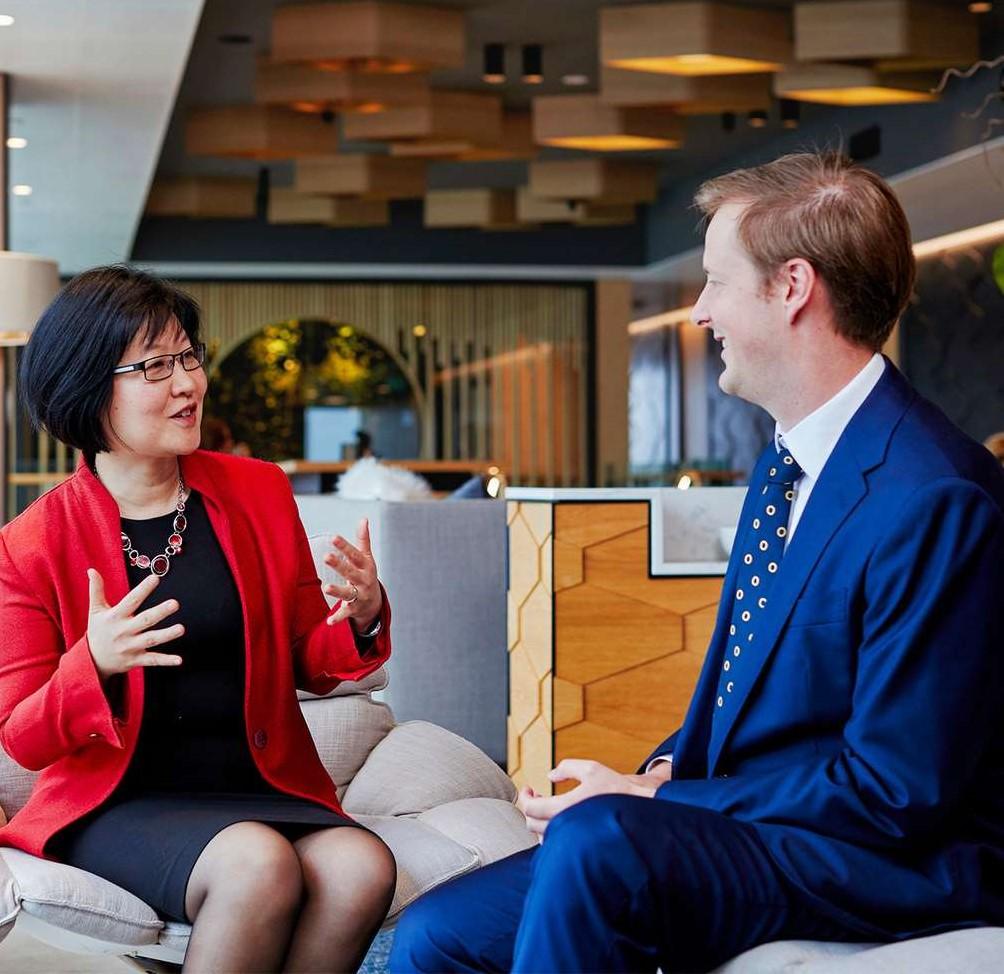
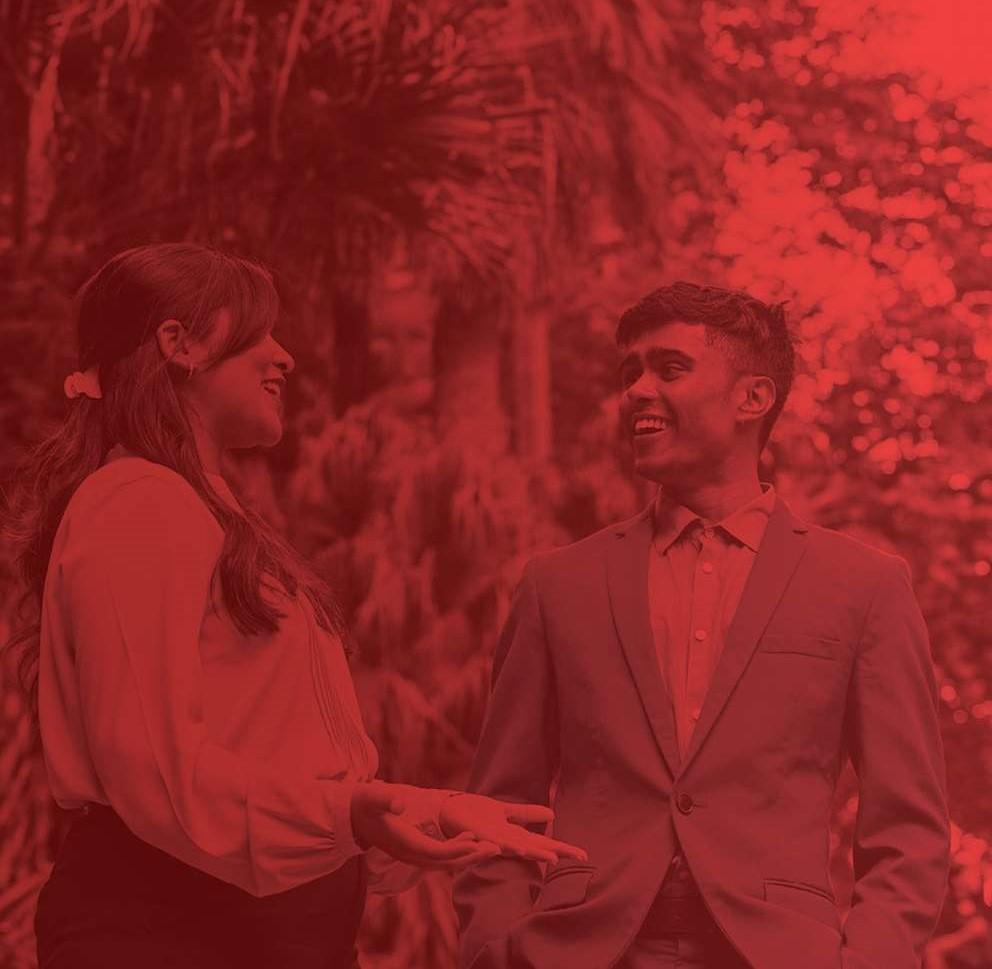





Our clerks and graduates tell us that three key things make the MinterEllison experience:
1. Experiencing high profile matters in a top-tier firm
2. Our unique culture
3. Our future-focused learning and development
Right from the start you’ll work on real client engagements, preparing you for any challenge. Discover new areas of practice, and learn the technical knowledge and tools you need to achieve your career ambitions.
Winner, Most Popular Clerkship Employer
Top100 Graduate Employer Awards 2024
Top Graduate Employers 2024
Australian Association of Graduate Employers
Finalist, Most Popular Law Employer
Top100 Graduate Employer Awards 2024
Top Intern Programs 2024
Australian Association of Graduate Employers
For information and to apply, visit graduates.minterellison.com
1. Collaborate with the best: work with the best minds in the business
Embark on a career filled with diverse clients, engaging transactions, and cases, plus the ability to work alongside our outstanding teams.
2. Embody excellence: great roles in great matters
We deliver excellence in everything we do – both for our clients and how we work together every day. We embrace continuous improvement and innovation to ensure we maintain our market-leading position.
3. Ignite your curiosity: dive into a culture of innovation
We do things differently – we bring together brilliant minds across legal and consulting. We’re industry leaders in AI and digital technology.
4. Achieve your ambitions: develop the skills for tomorrow
Feed your passion for personal and professional achievement by working on truly significant matters with high calibre clients. Our learning programs will help you build the skills you need to be the trusted advisor of tomorrow.
5. Belong and be valued: dive into a culture of innovation
We want our people to be able to bring their whole selves to work and and feel empowered to perform at their best.
Please note the dates provided are a guide only. The deadlines may differ depending on the firm you are applying to. All times are Australian Eastern Standard Time.
Applications Applications Offers made Offers must be State/Territory open close from accepted by
New South Wales and the Wednesday, Sunday, Wednesday, Thursday, Australian Capital Territory 11 June 13 July 10 September 11 September at 9:00am at 11:59pm at 9:00am at 1:00pm
Victoria Monday, Sunday, Thursday, Thursday, 7 July 10 August 16 October 16 October at 9:00am at 11:59pm at 10:00am at 2:00pm
Queensland
Western Australia
Monday, Friday, Wednesday, Thursday, 14 July 8 August 8 October 9 October at 5:00pm at 9:00am at 1:00pm
Monday, Sunday, Friday, Friday, 23 June 27 July 12 September 12 September at 9:00am at 1:00pm

Deciding on the firm that’s right for you is a big decision. Is the culture right for me? Will I receive quality work? Will there be people genuinely interested in my growth who can point me in the right direction? Does the firm embrace technology and take innovation seriously?
At Sparke Helmore, you’re encouraged to be actively involved as part of our vibrant culture, where you are able to work collaboratively with your team and across teams to deliver great results.
Working at Sparke Helmore, you will be provided with a unique range of opportunities to expand your knowledge with access to:
• Market-leading expertise—we are a full service national law firm. This means you will have the opportunity to gain experience in each of our Insurance, Government, Workplace, Corporate & Commercial and Property, Environment & Finance practice groups.
• Real legal work—from your first day, you will have the opportunity to get involved in legal work that contributes to the firm and its clients.
• Training and development—a combination of formal and on-the-job training that covers technical and soft skills.
• Mentoring and networking—we have a proud reputation for mentoring and facilitating relationship building across the firm in a way that fosters personal and career development, networking and the sharing of knowledge, experience and learning.
• Opportunities to give back—through our Pro Bono and Community Programs.
Our people are key to our success. We are always on the look-out for lawyers with potential to progress, who fit with our culture and align with our values, and who demonstrate, among other things, intelligence, interpersonal skills, commitment, energy and commerciality.
Sparke Helmore lawyers are:
• all-rounders, who are engaged in extra-curricular pursuits as well astheir studies
• team players
• clear and concise writers, and
• confident and articulate communicators.
Your story is yours to define. We’d like to be part of it and for you to be part of ours. After all, the best stories are shared.
Want to know more about Sparke Helmore?
Visit the graduate program on our website.
